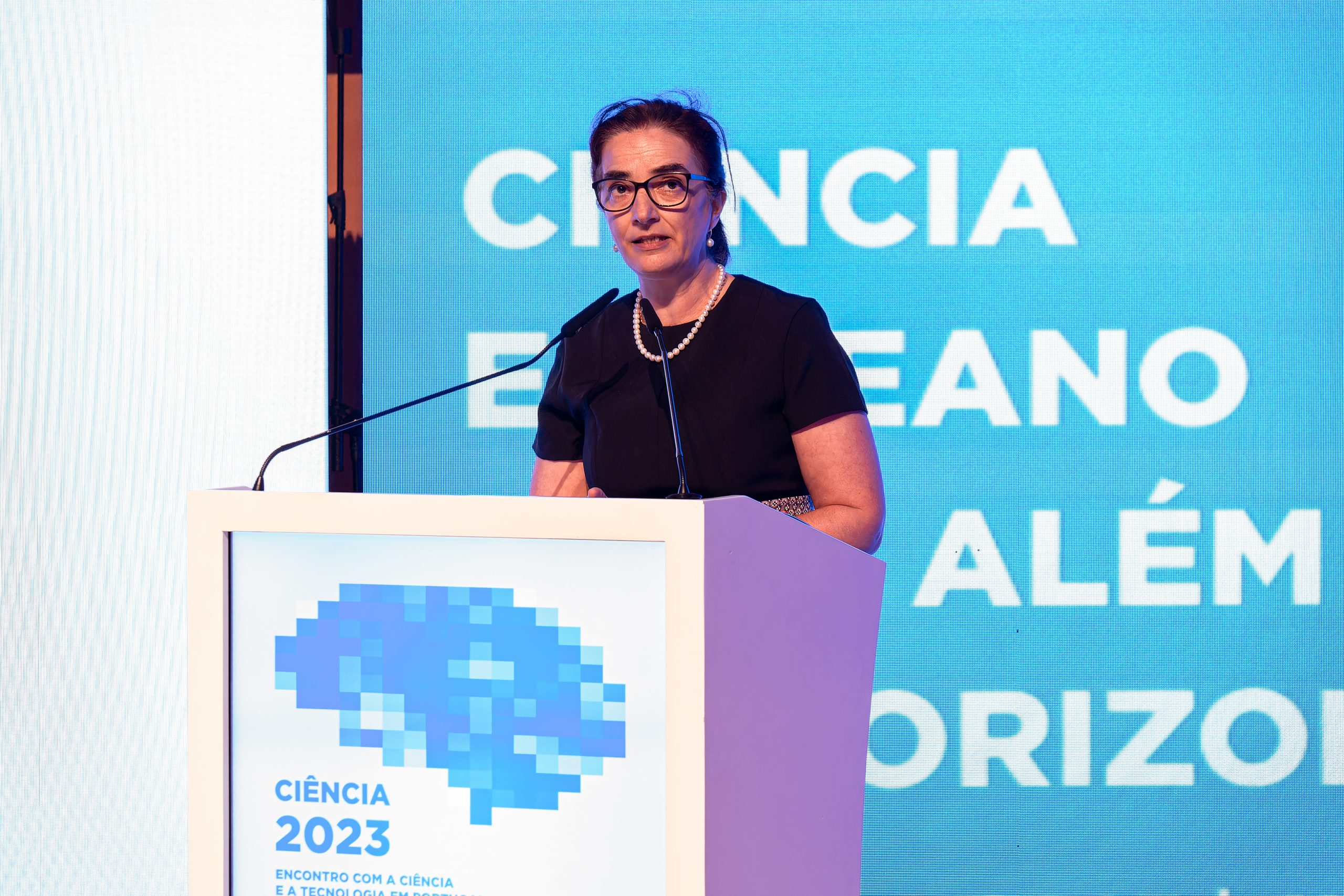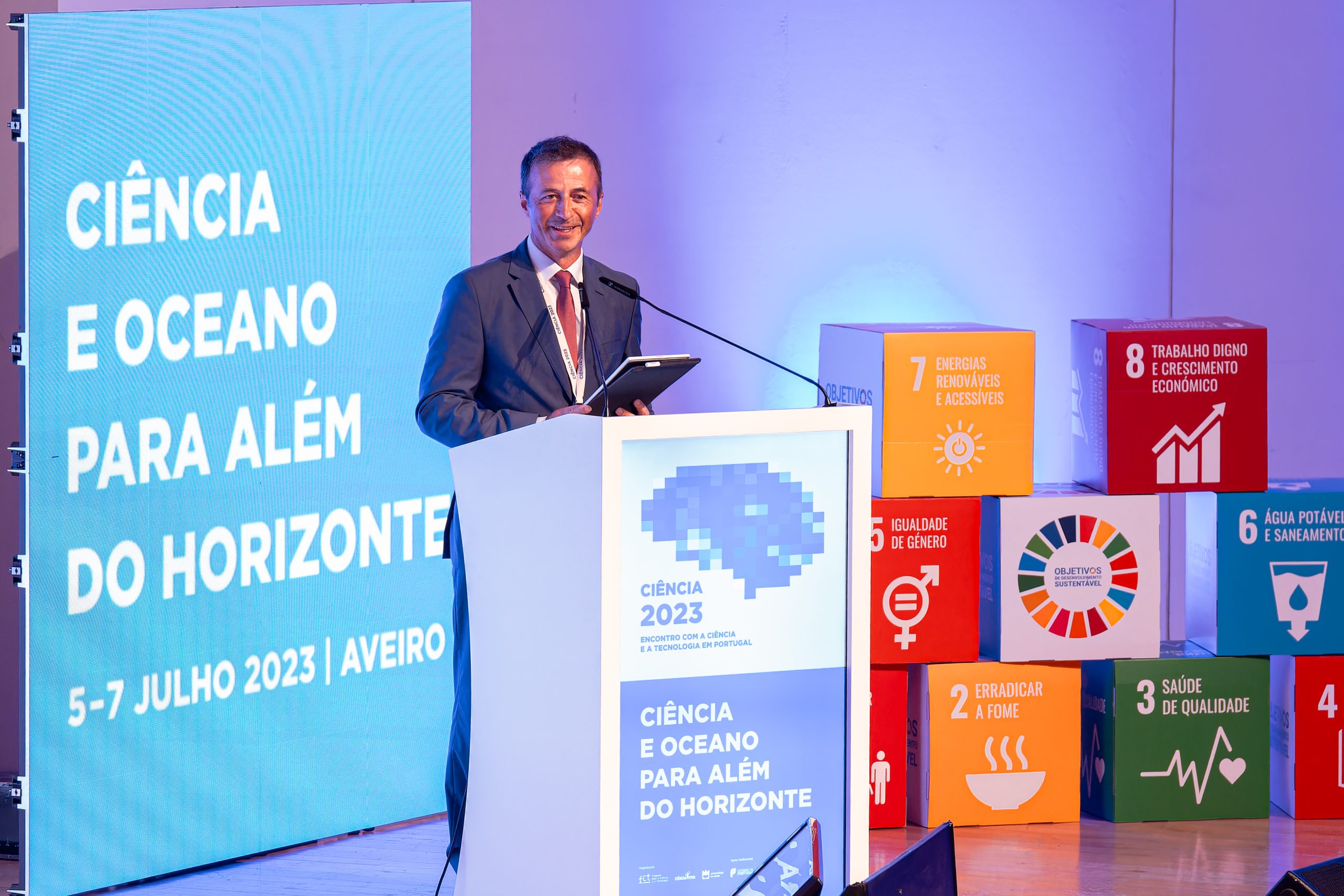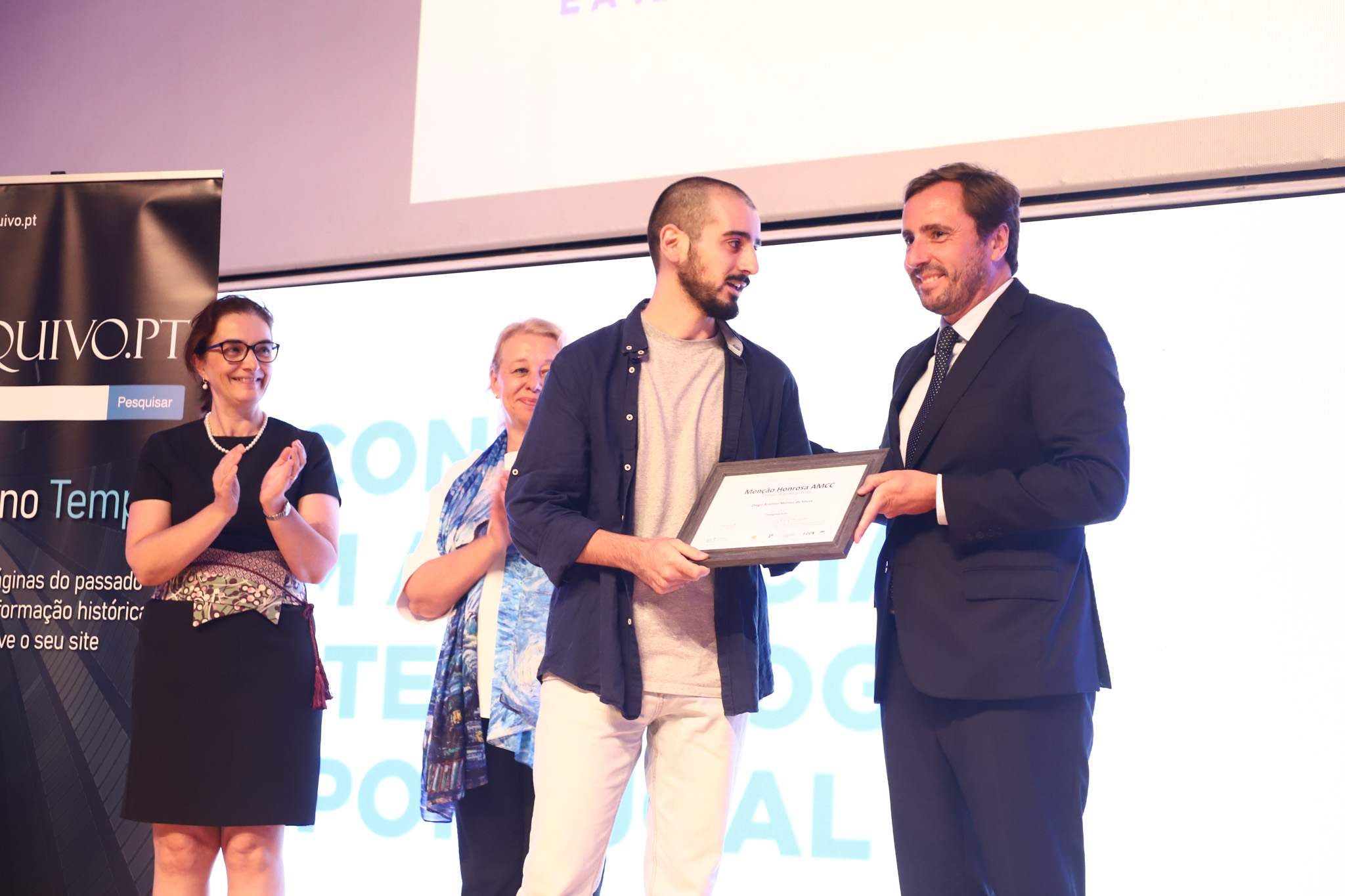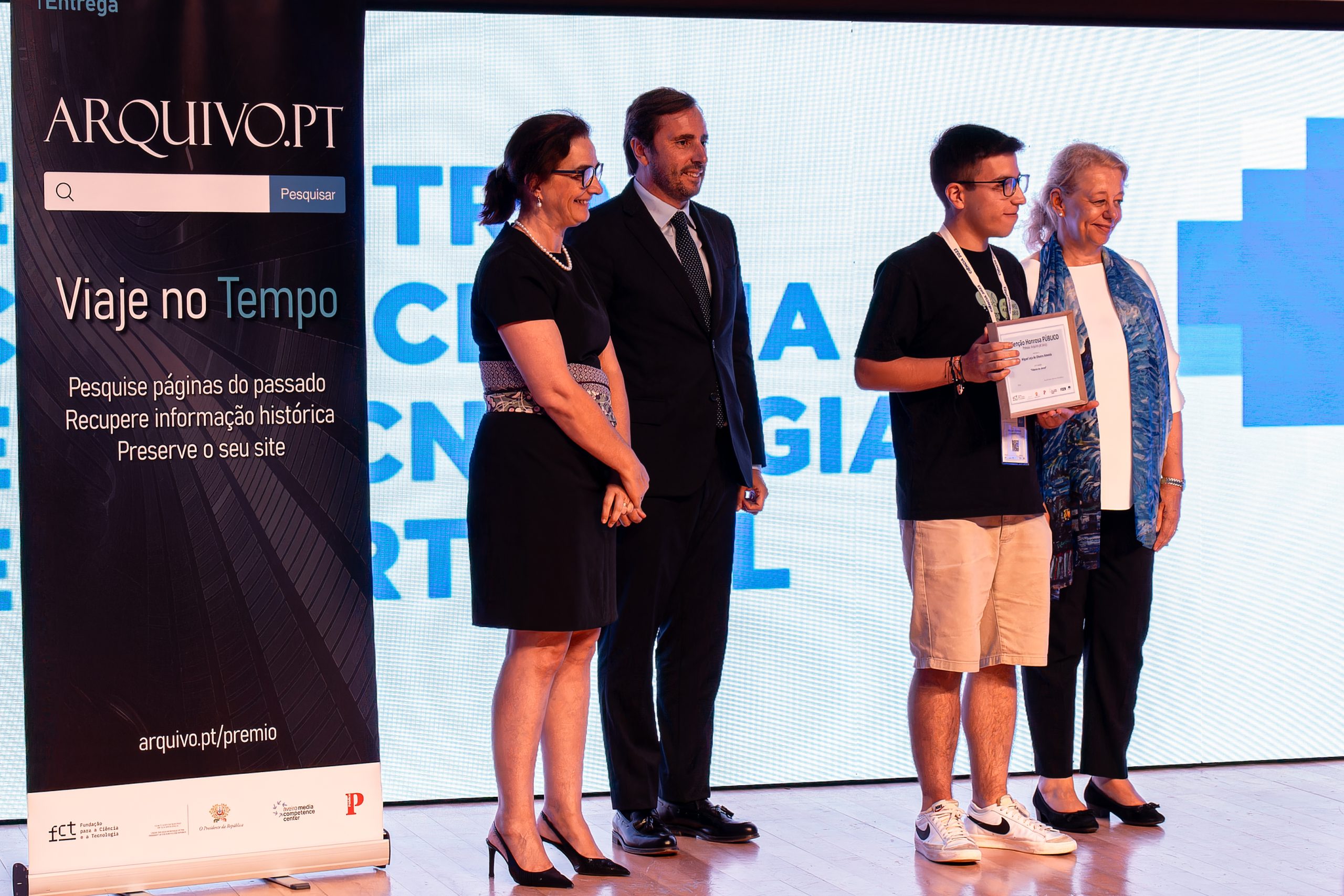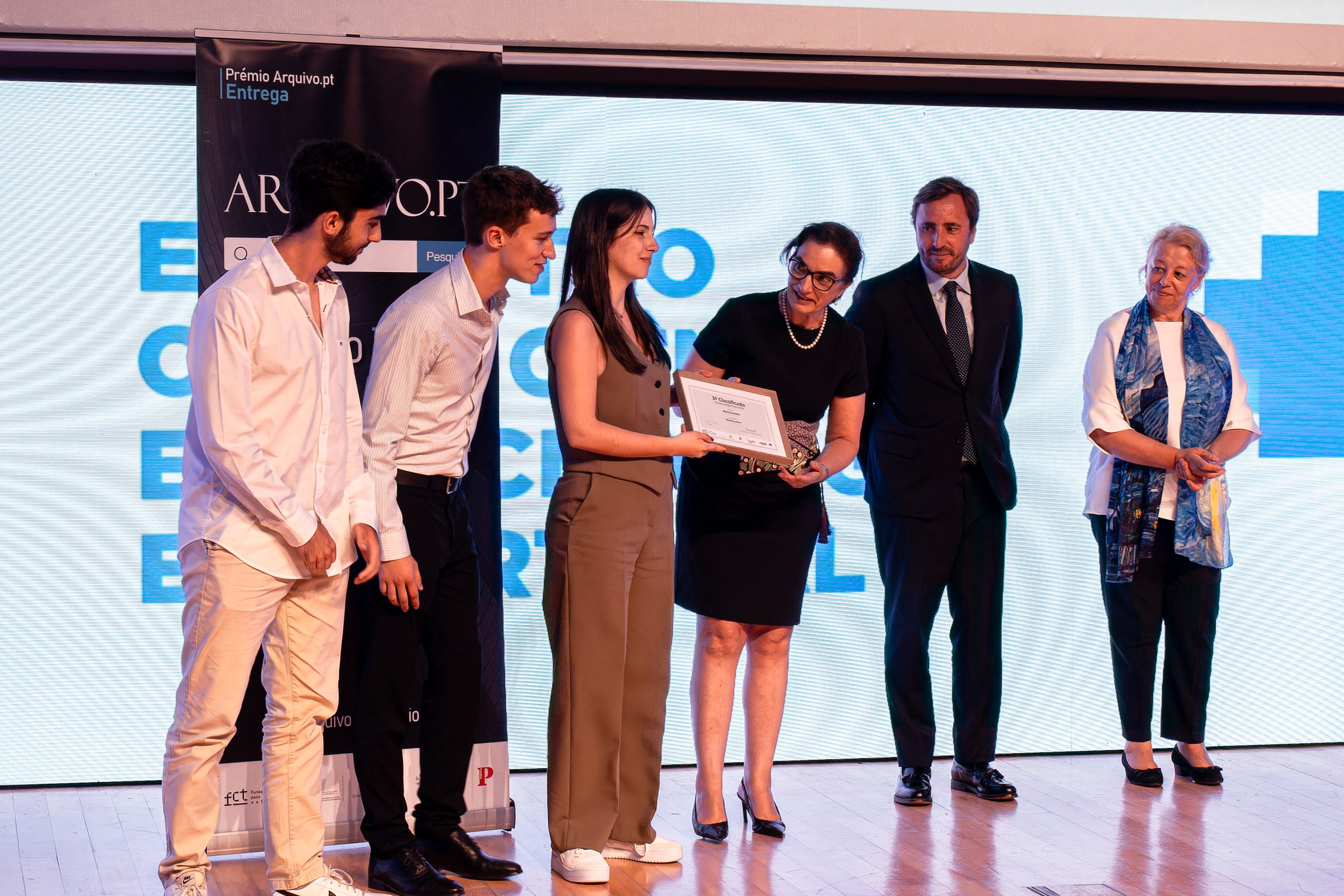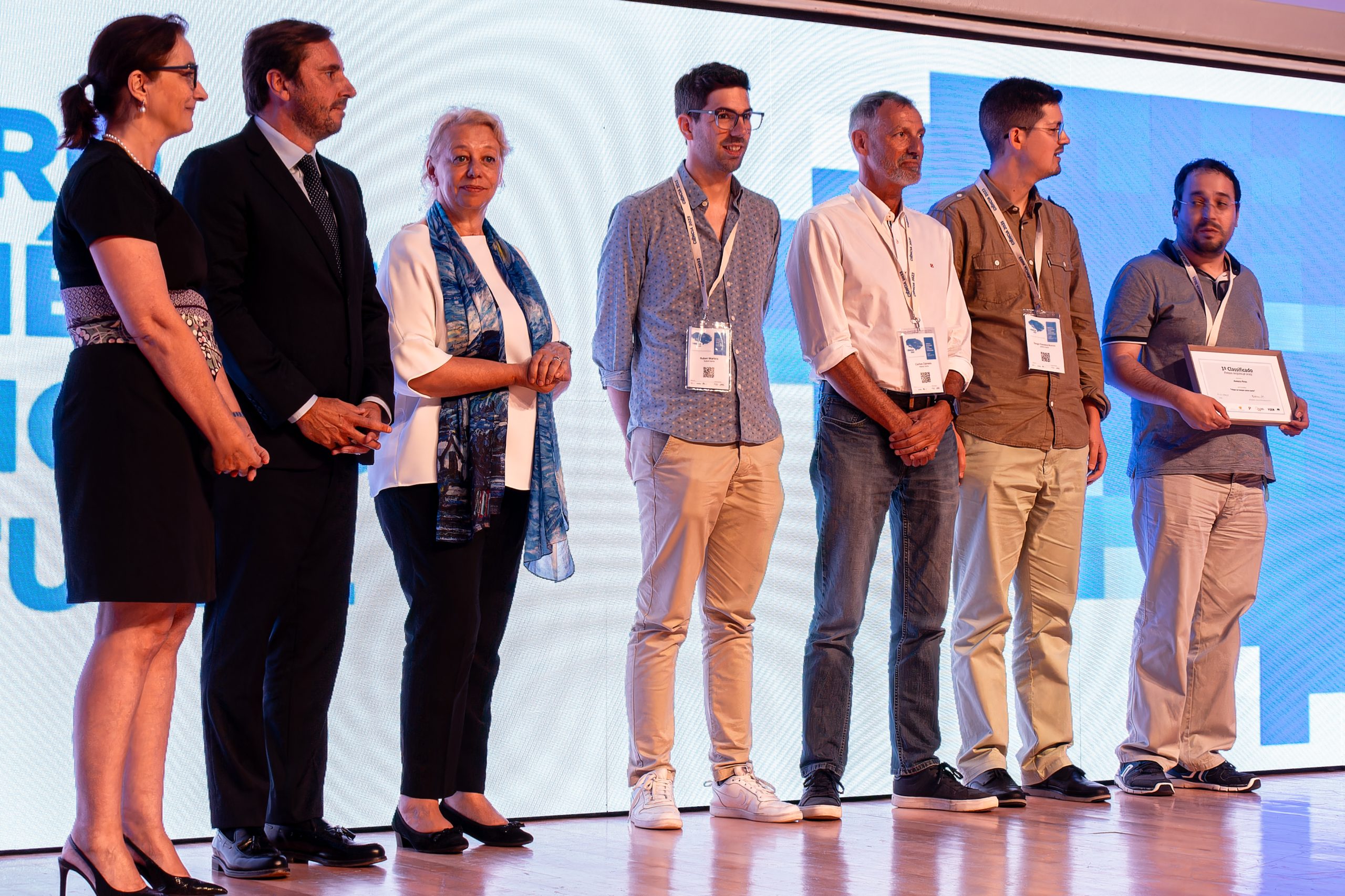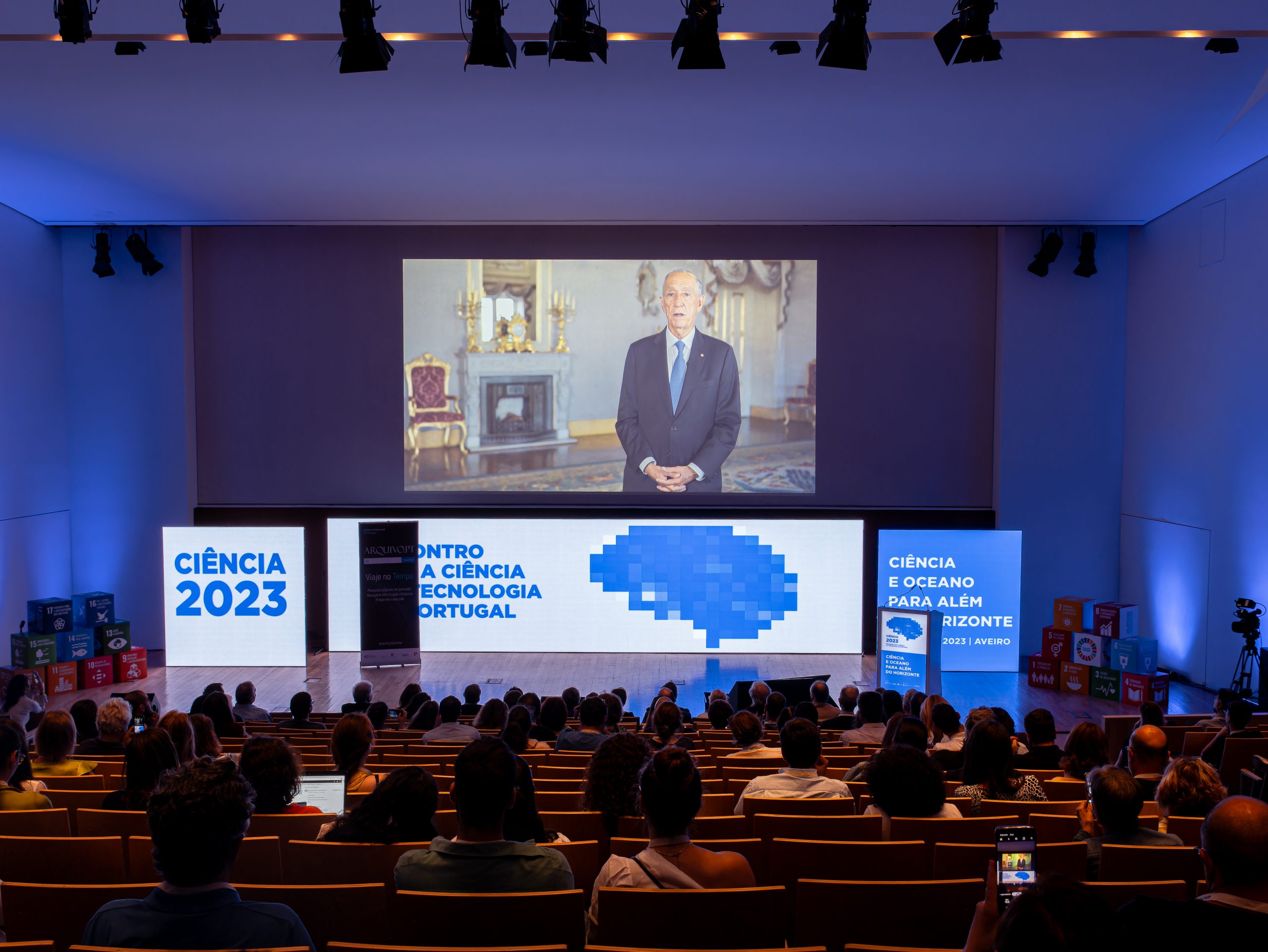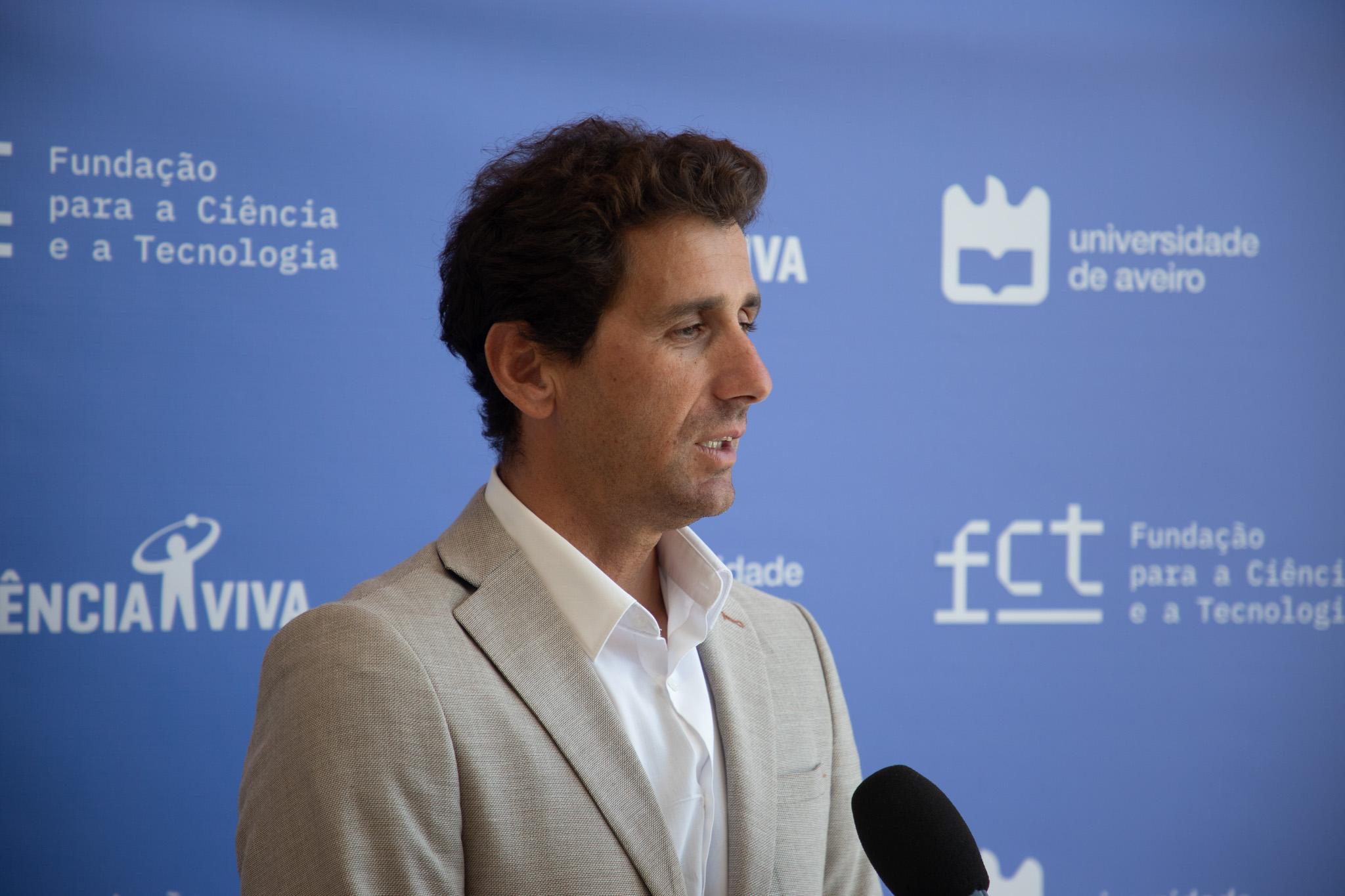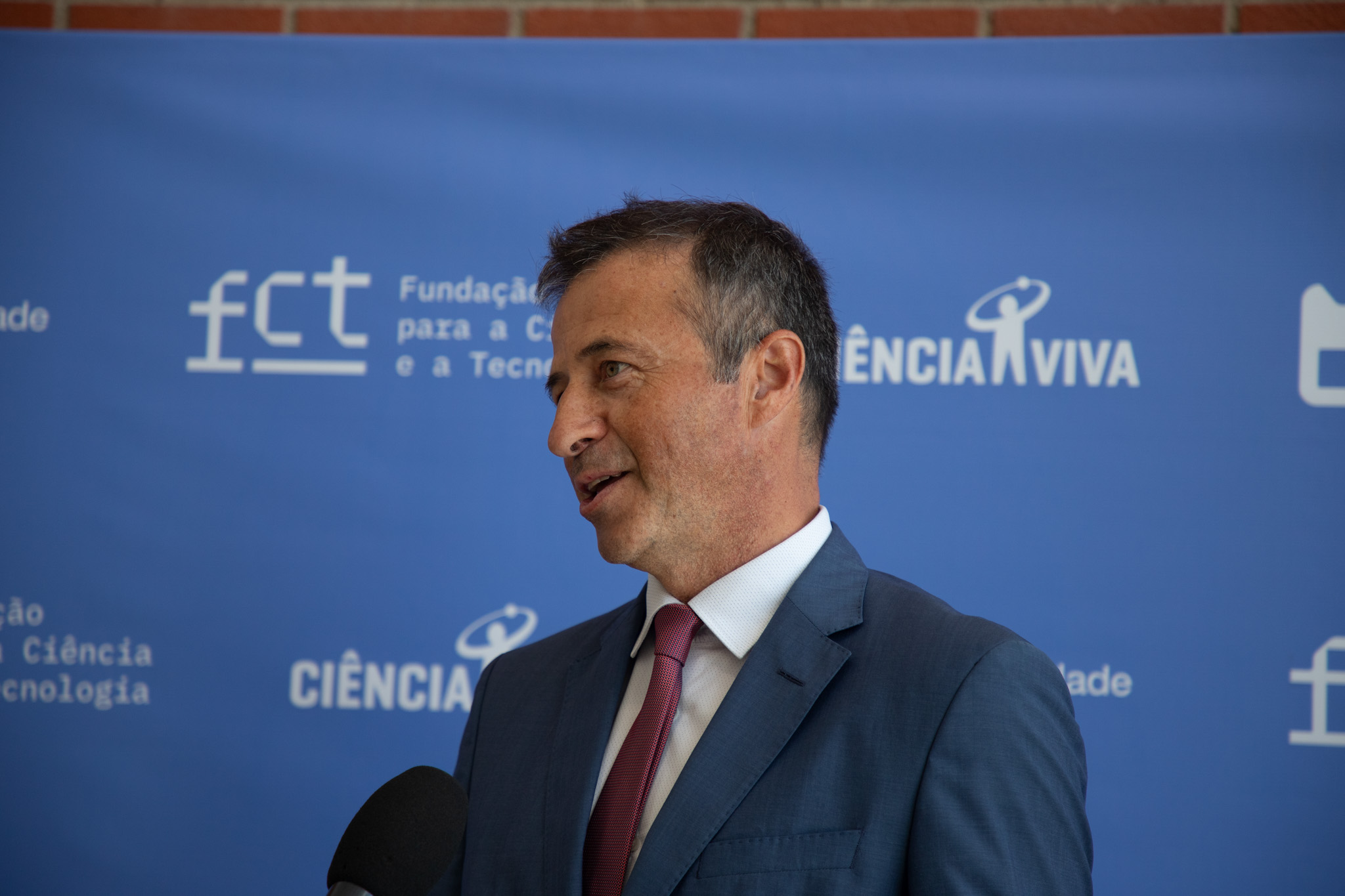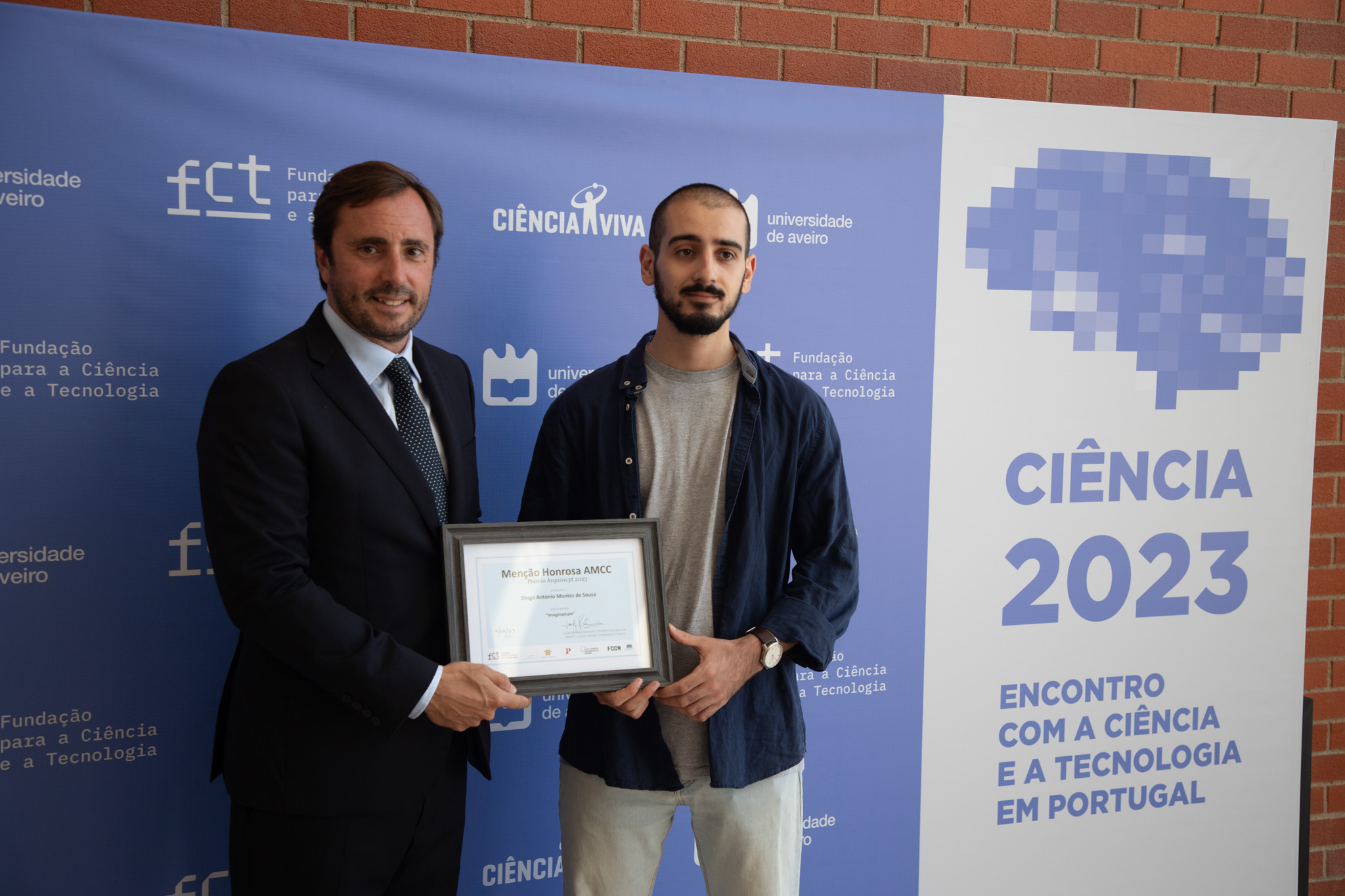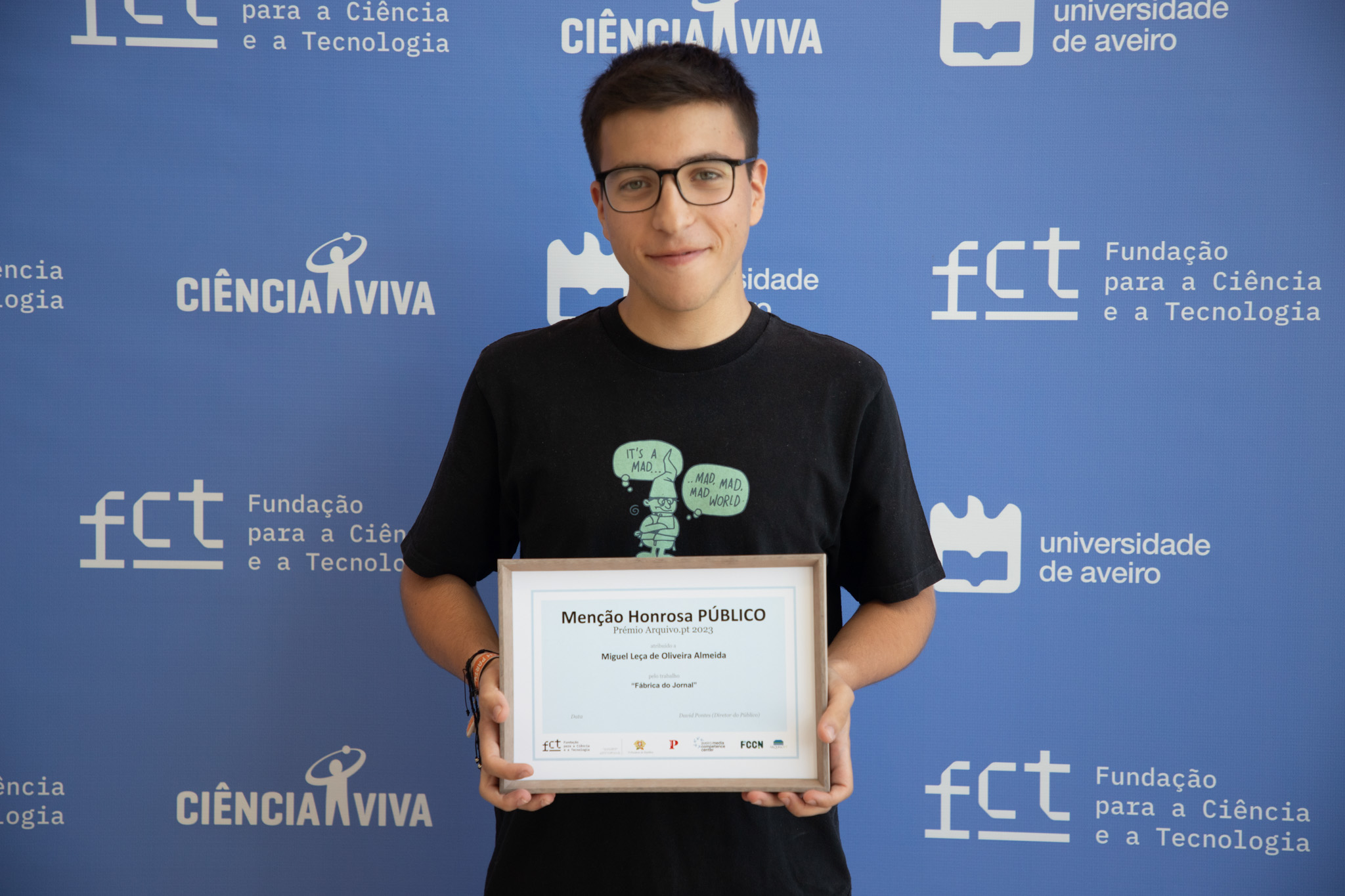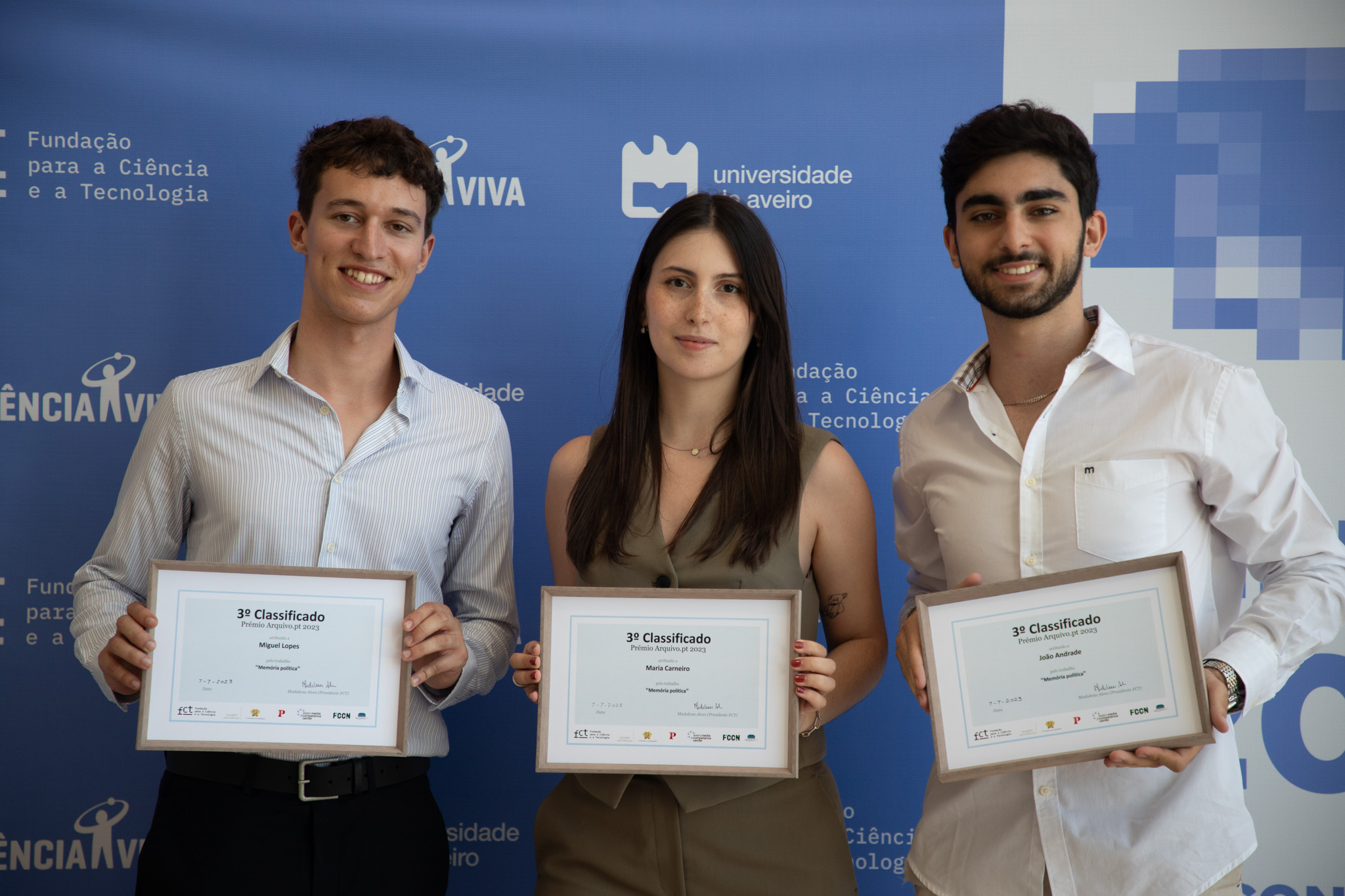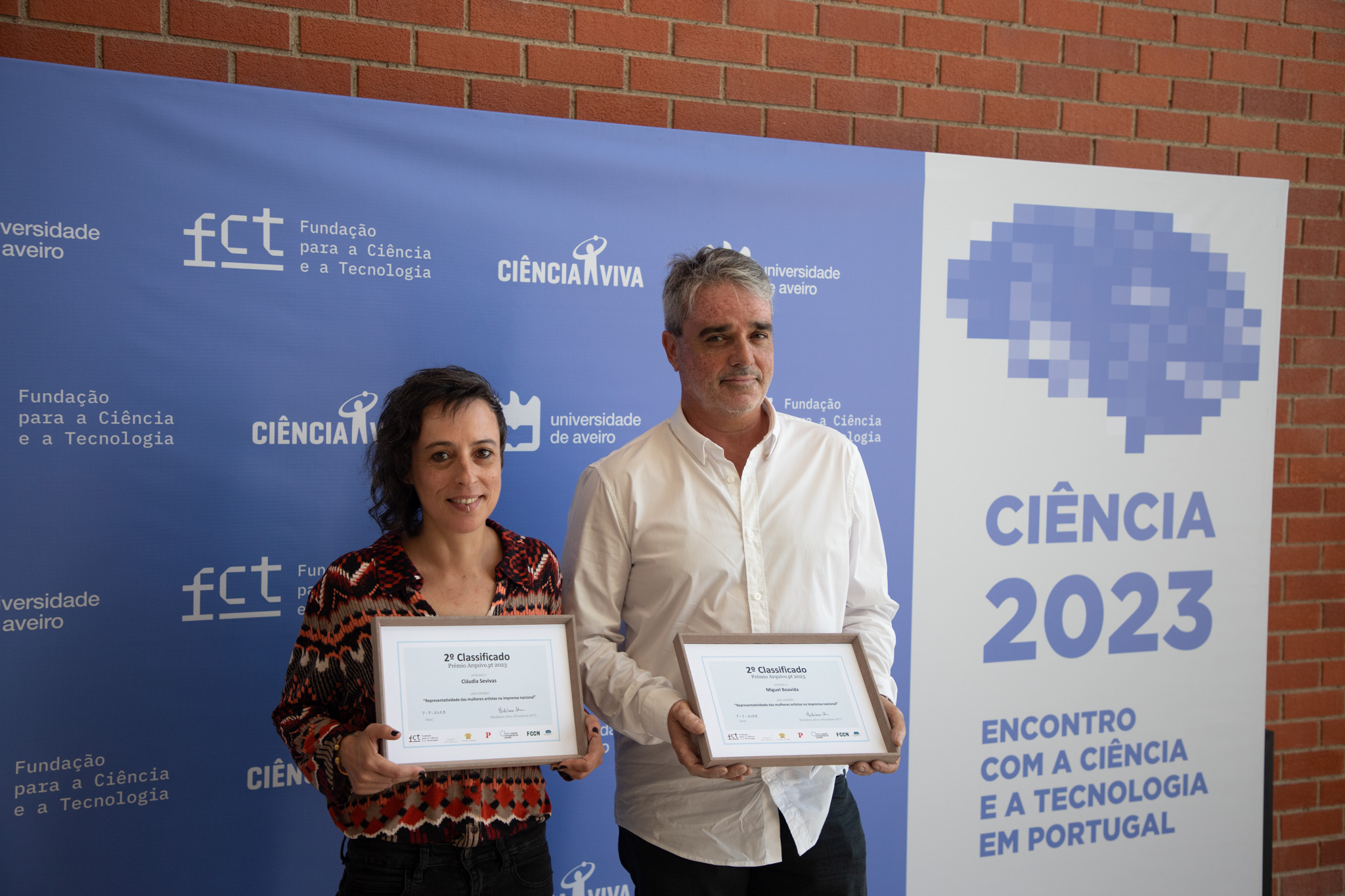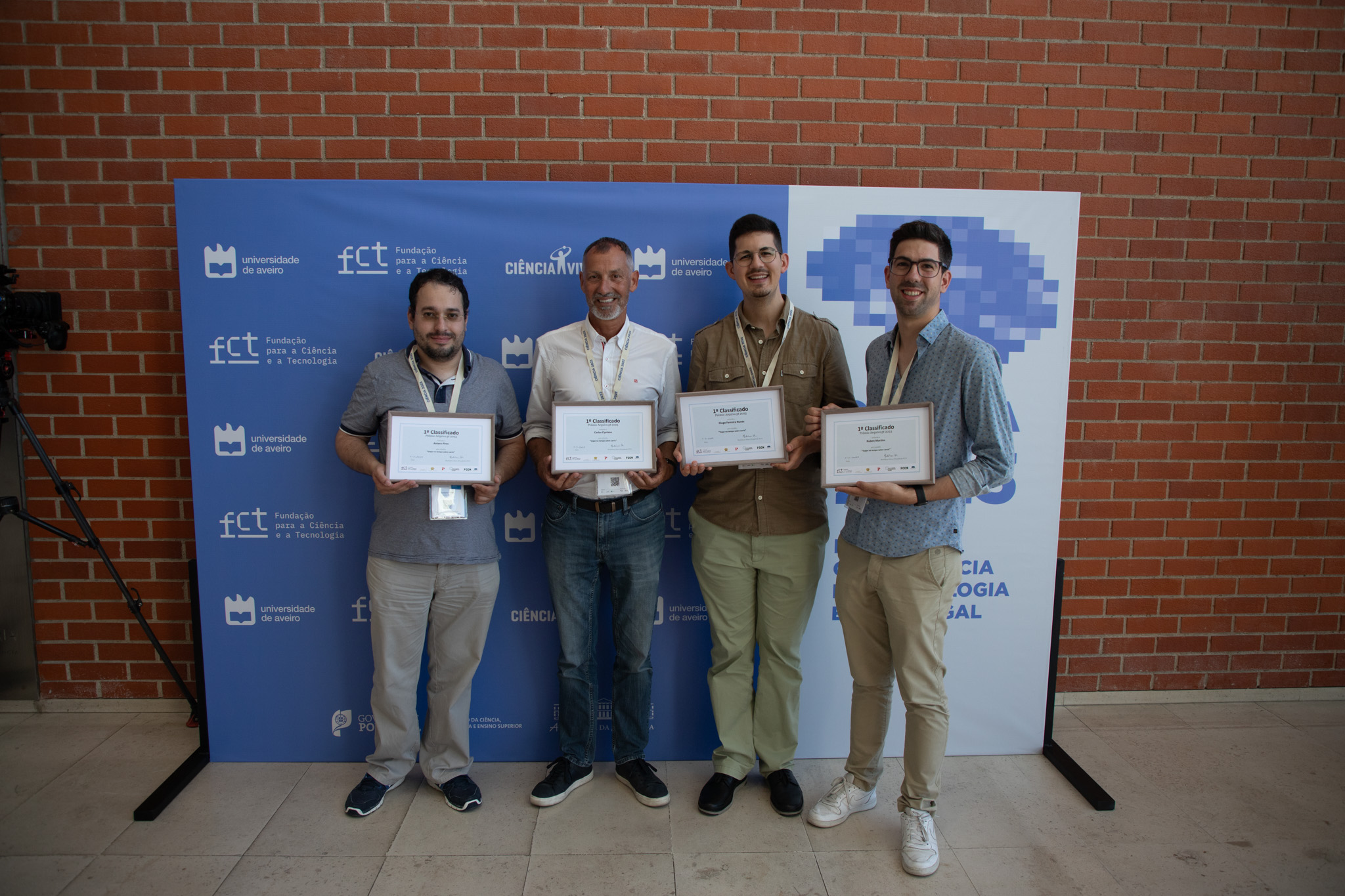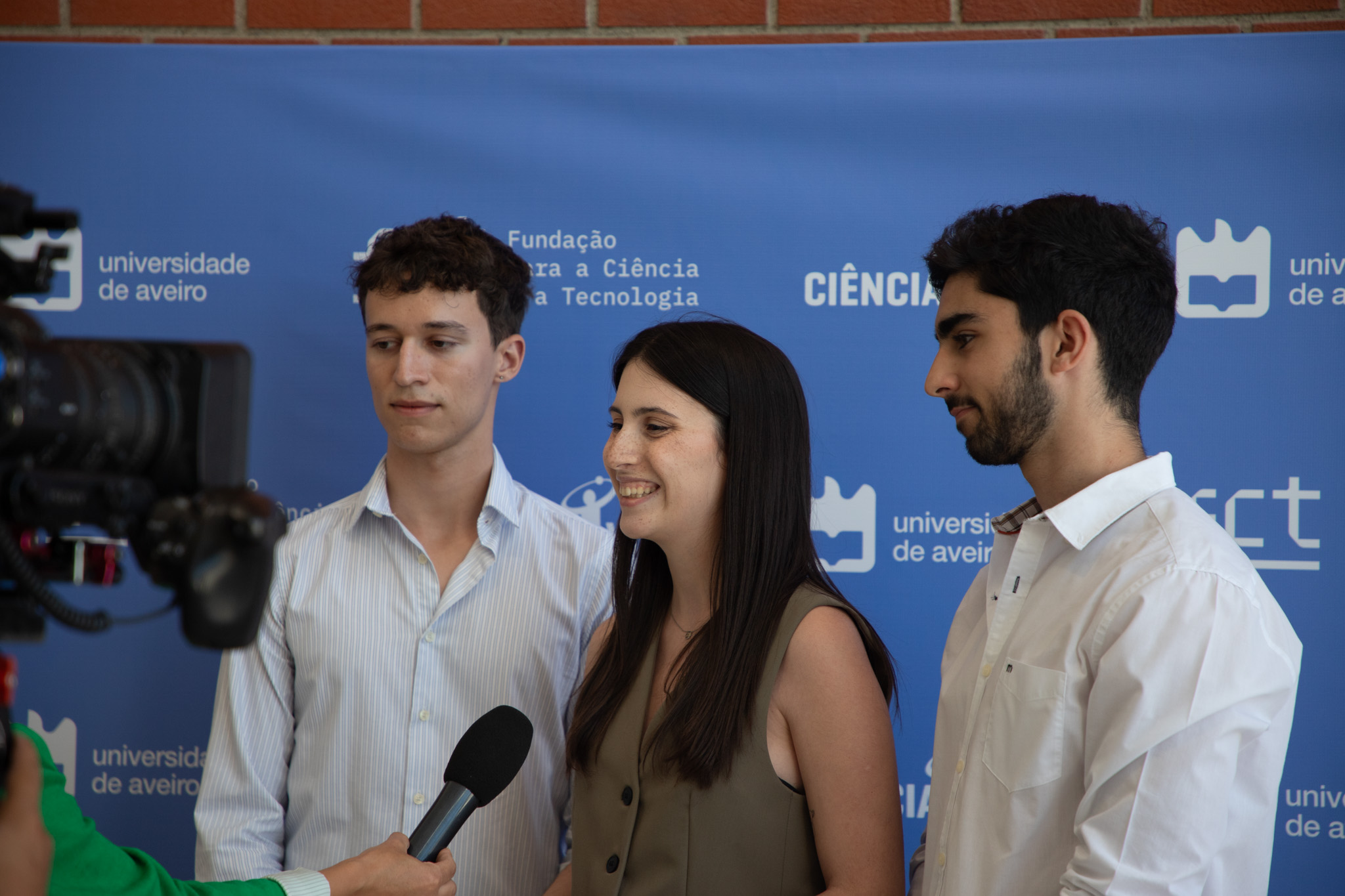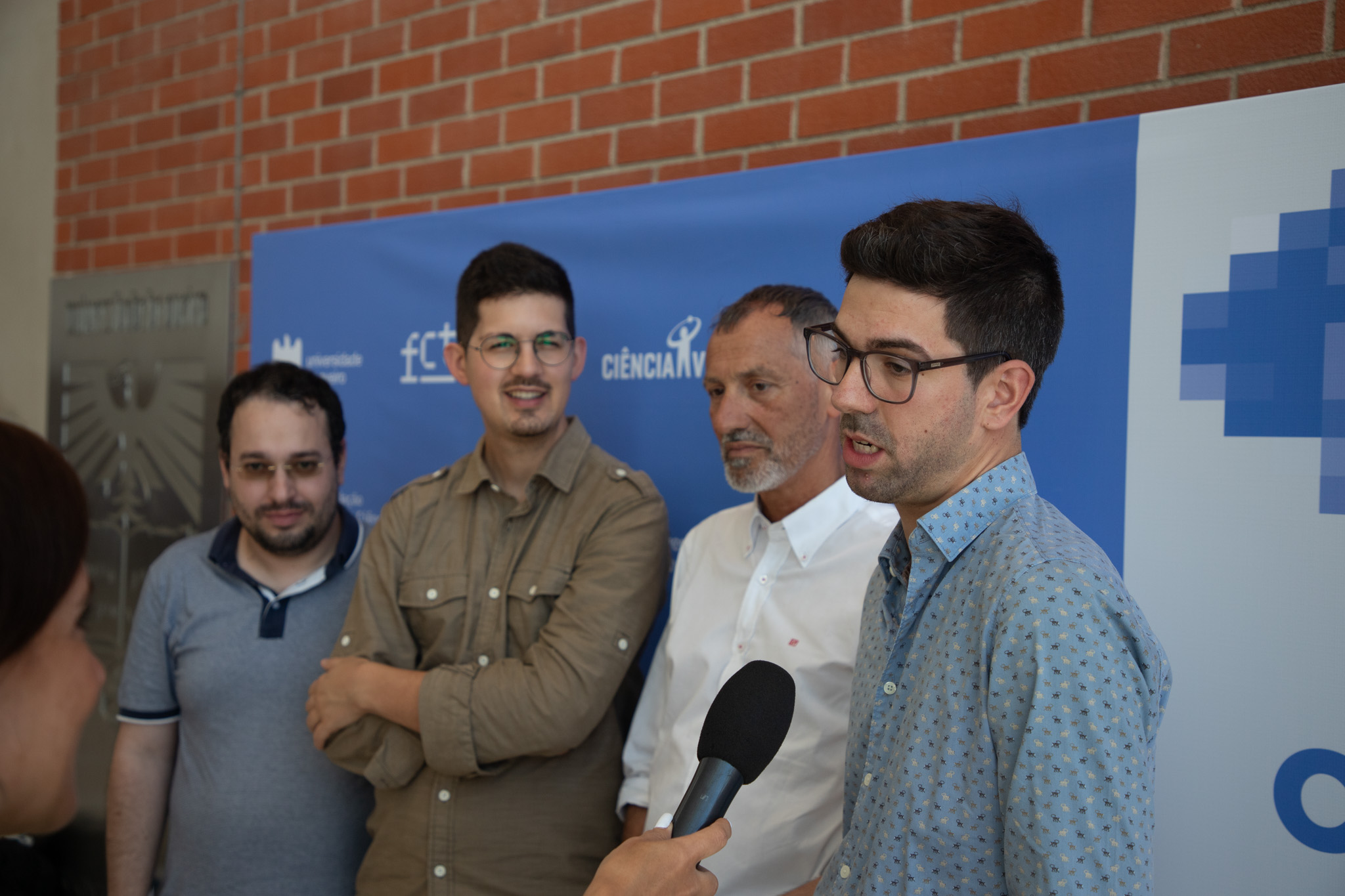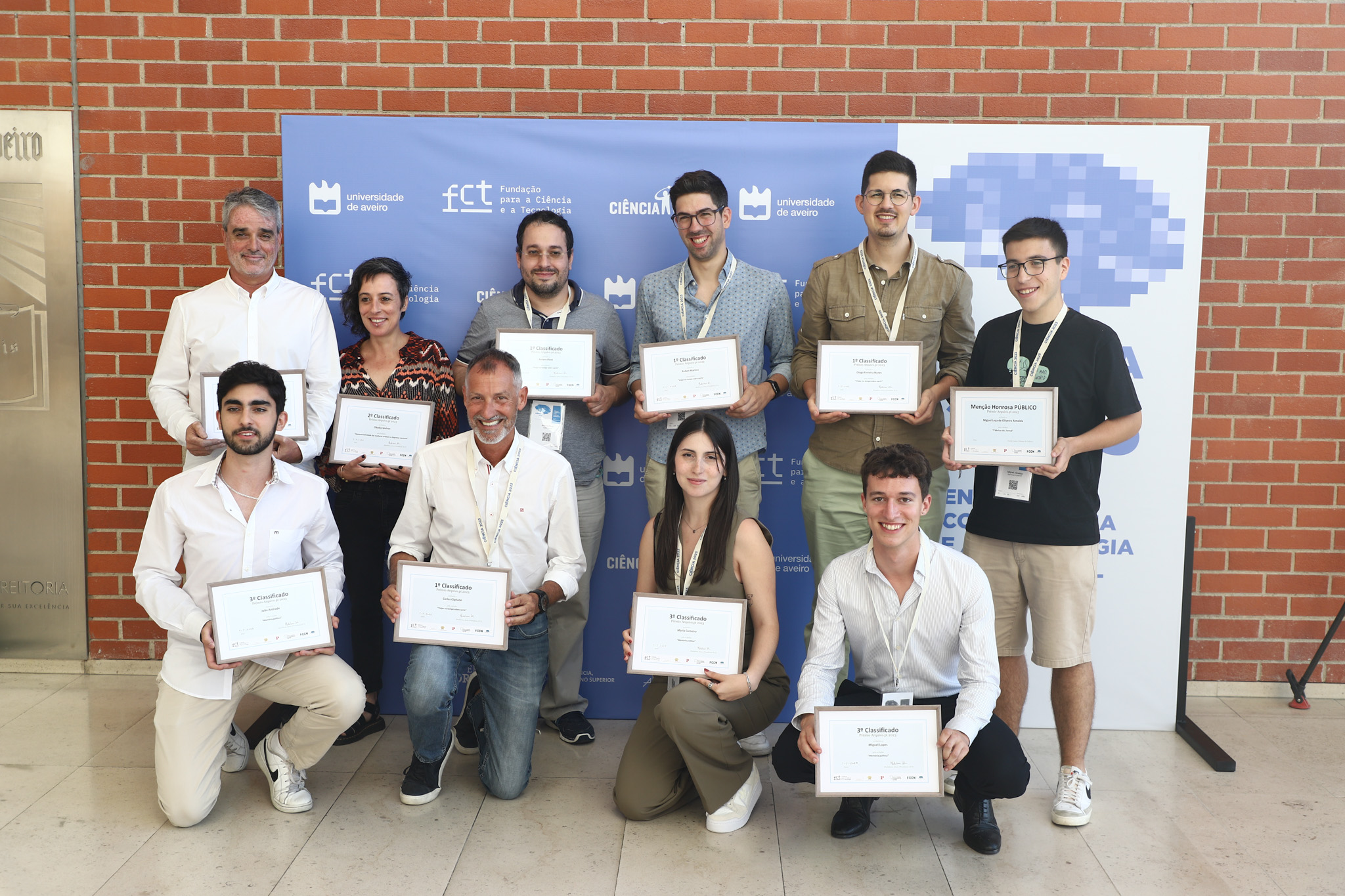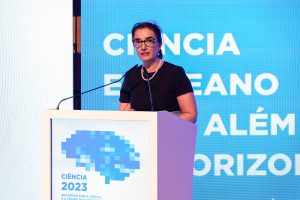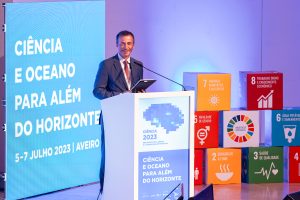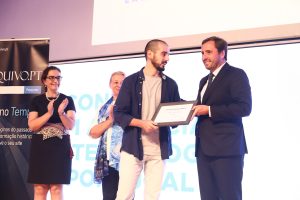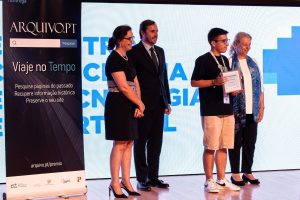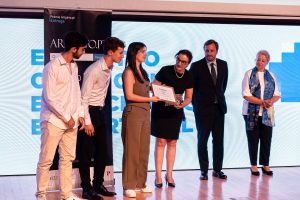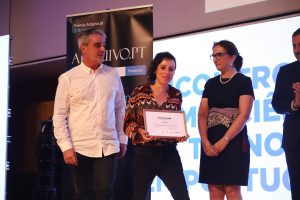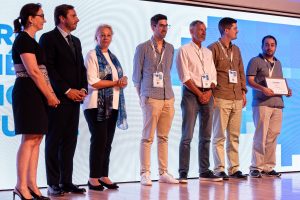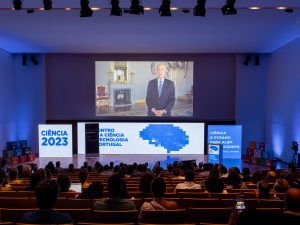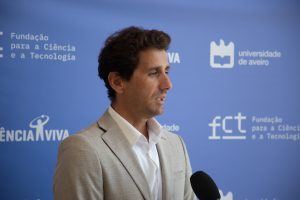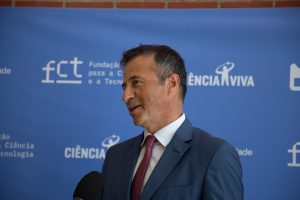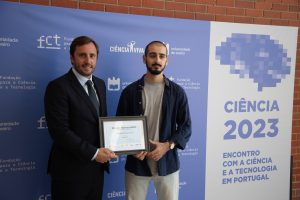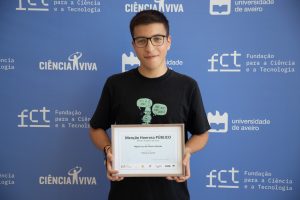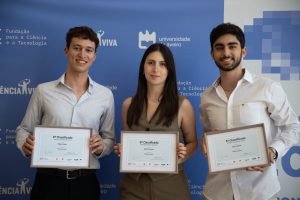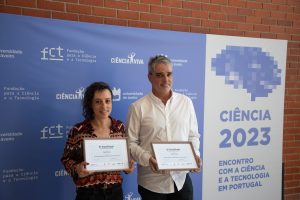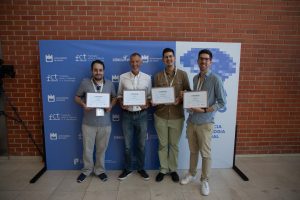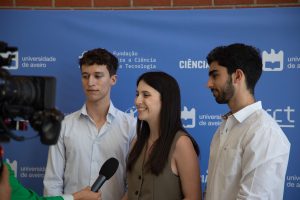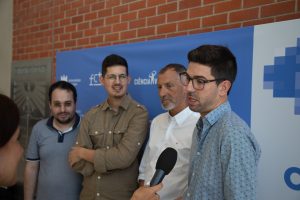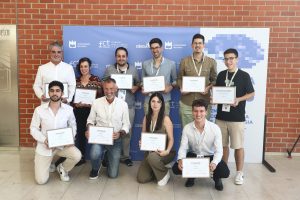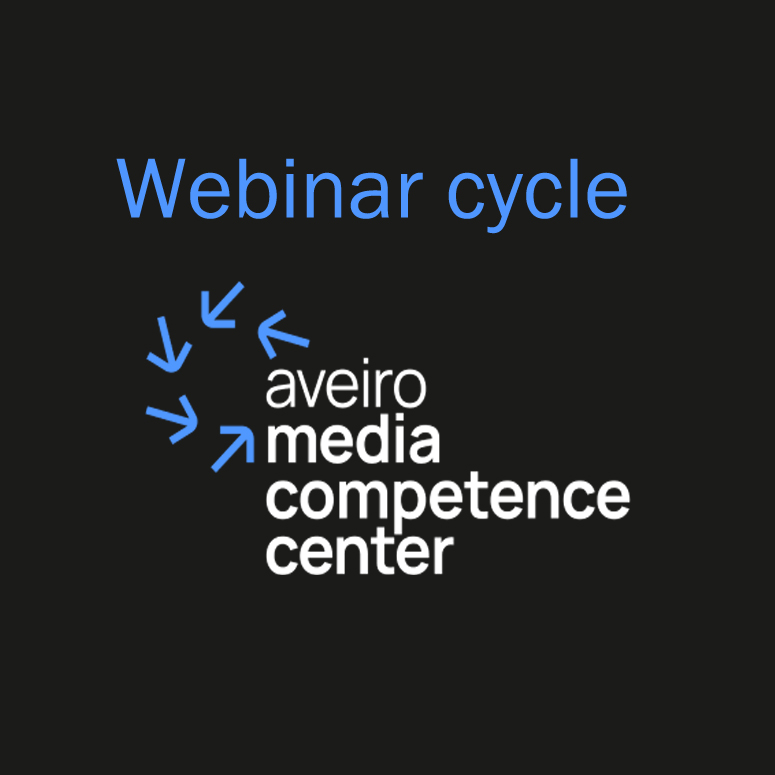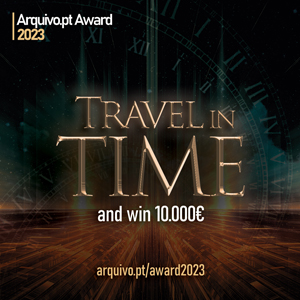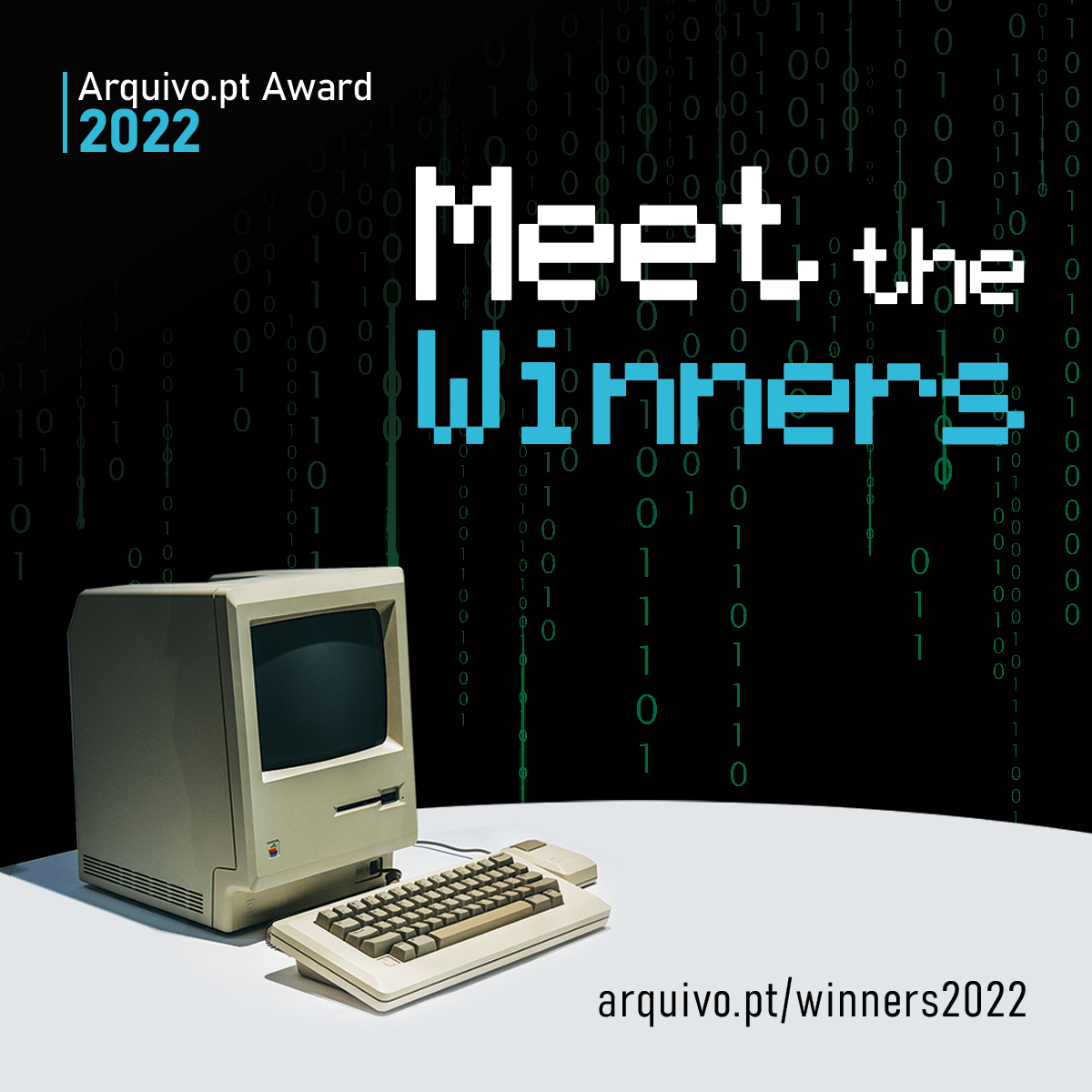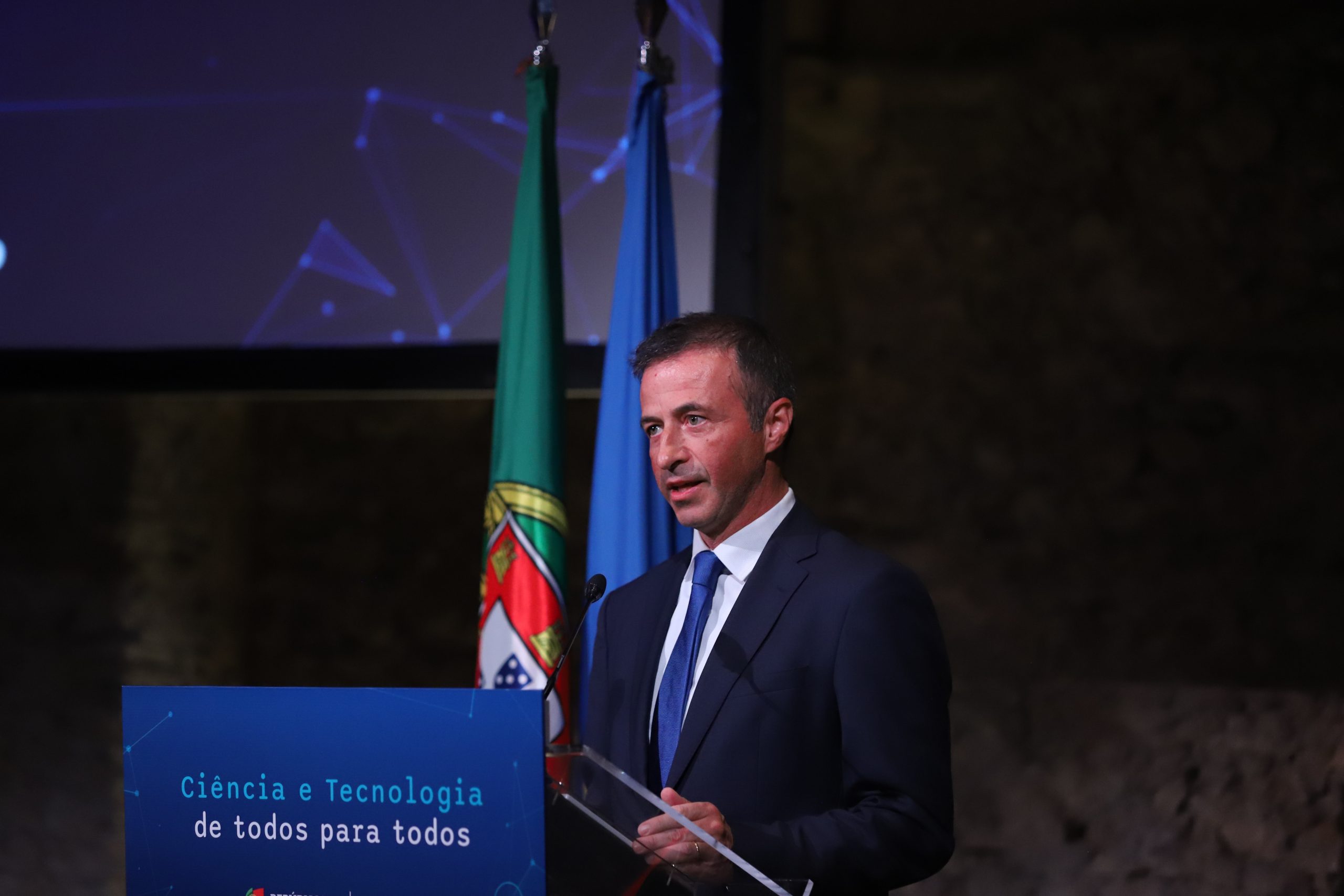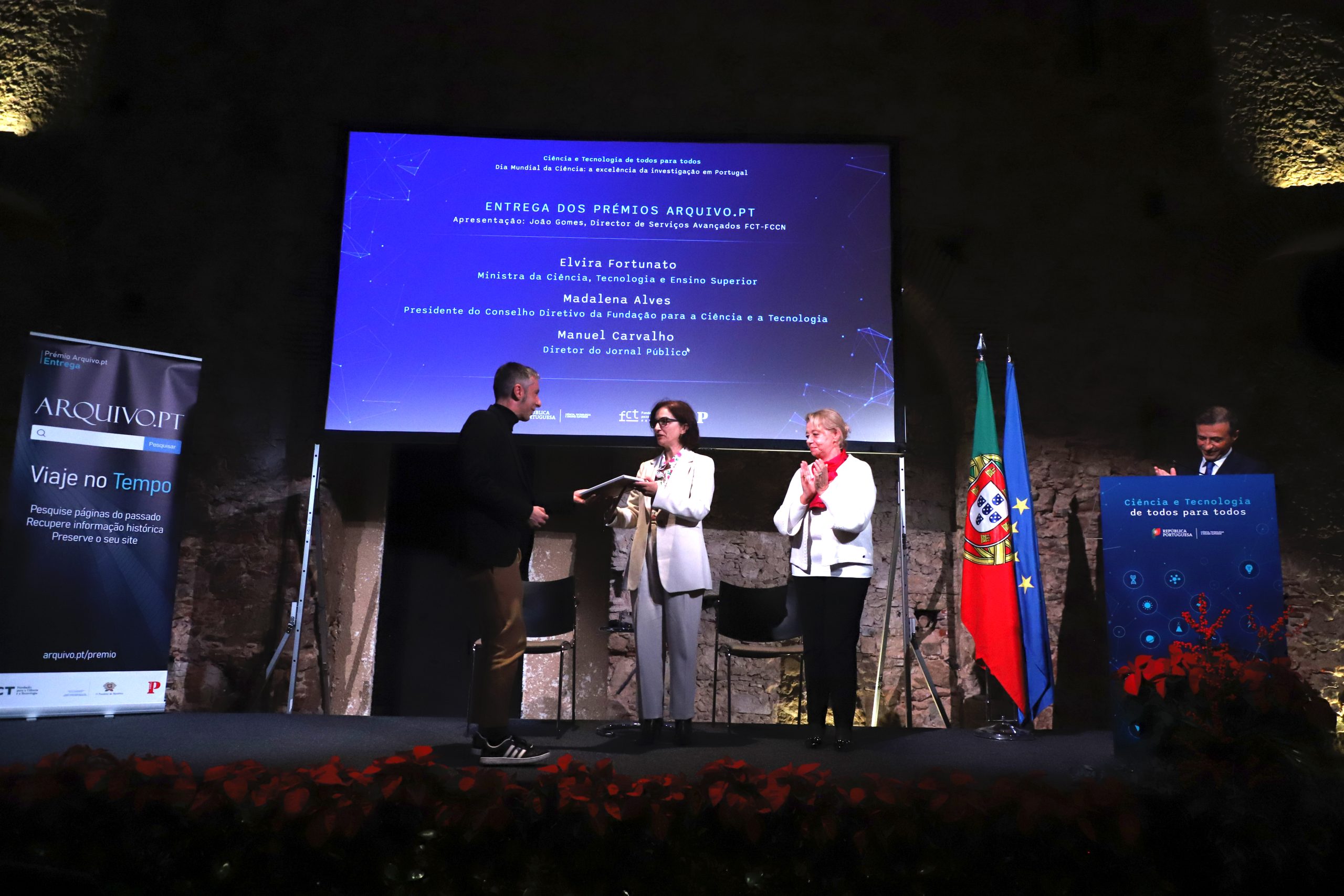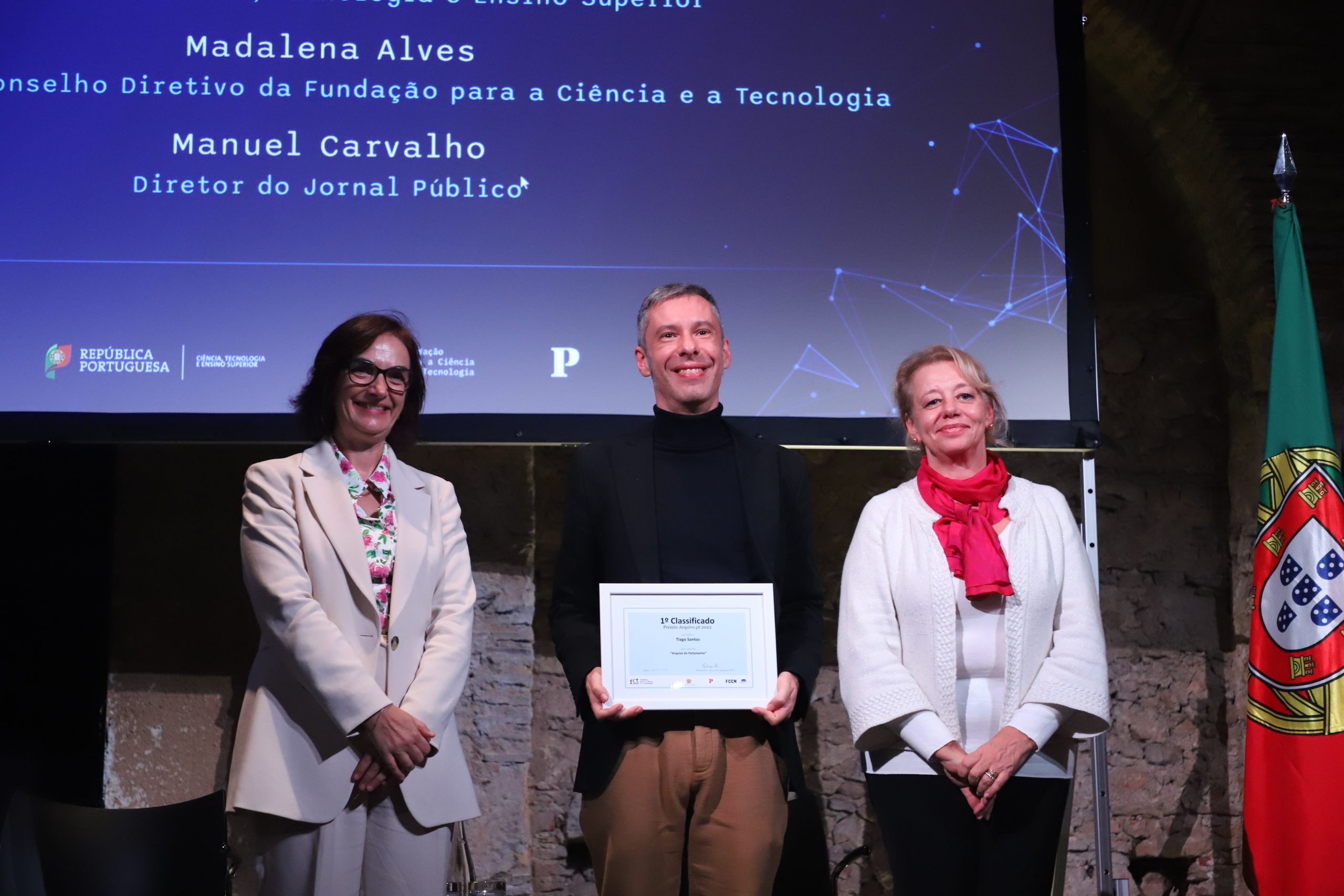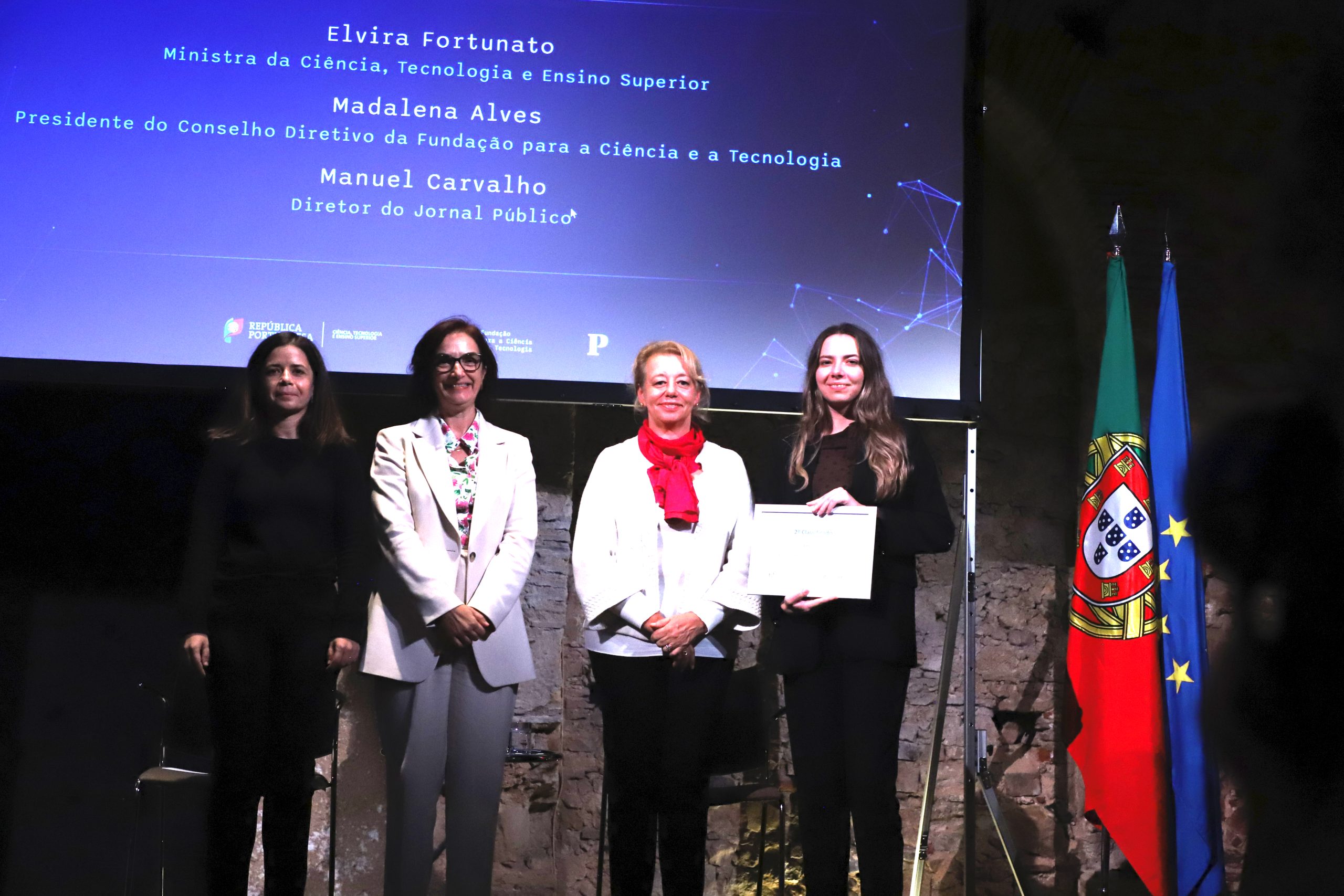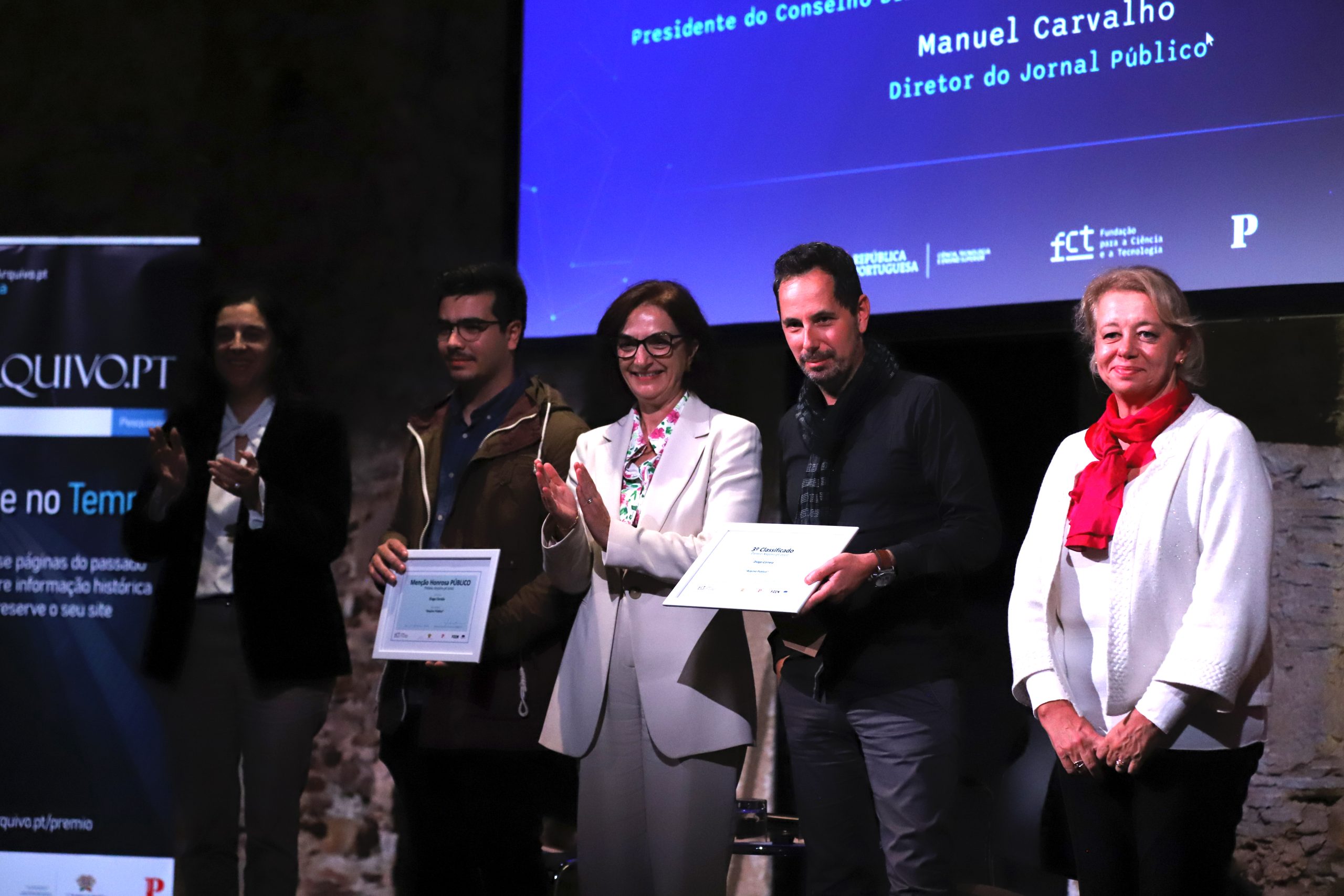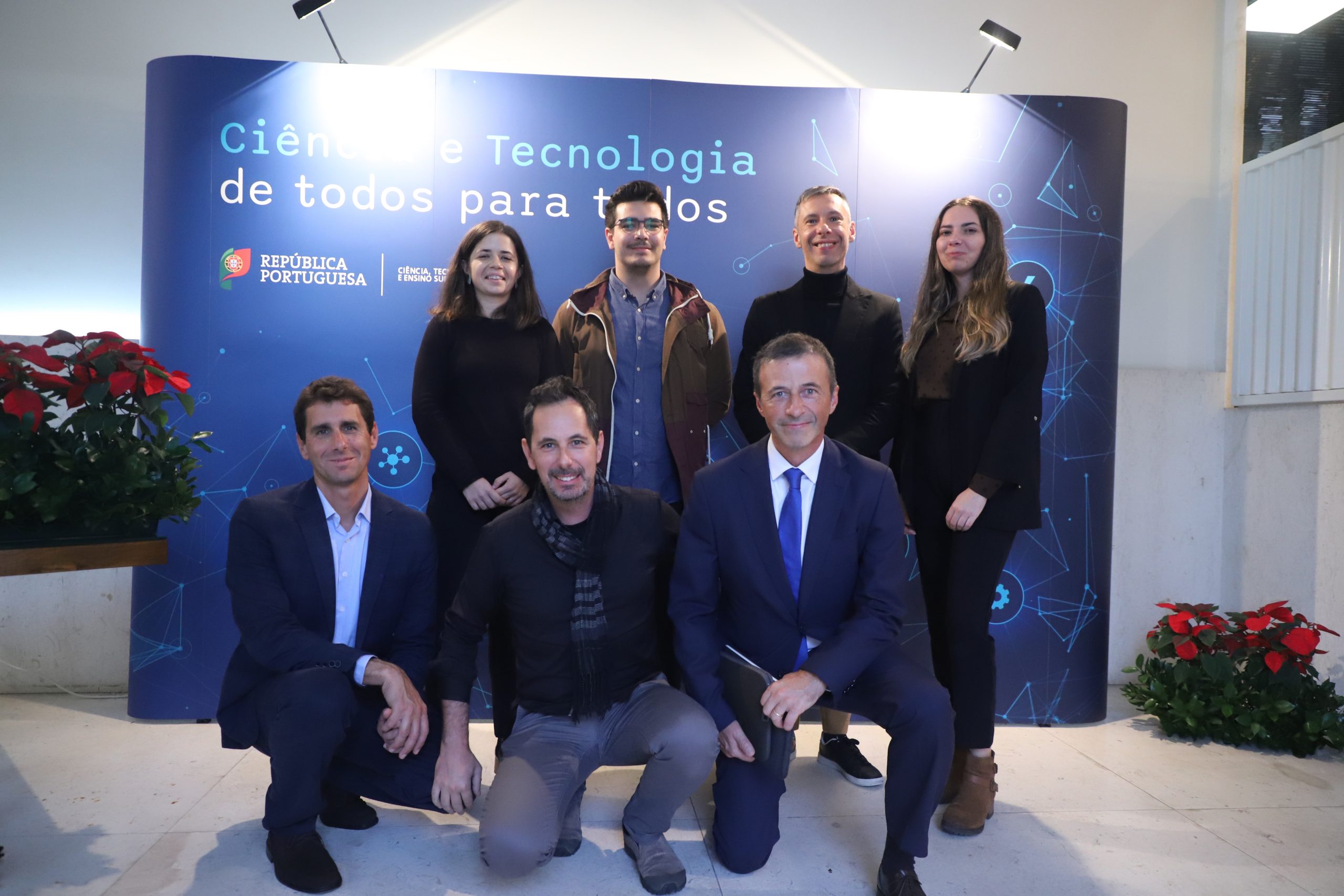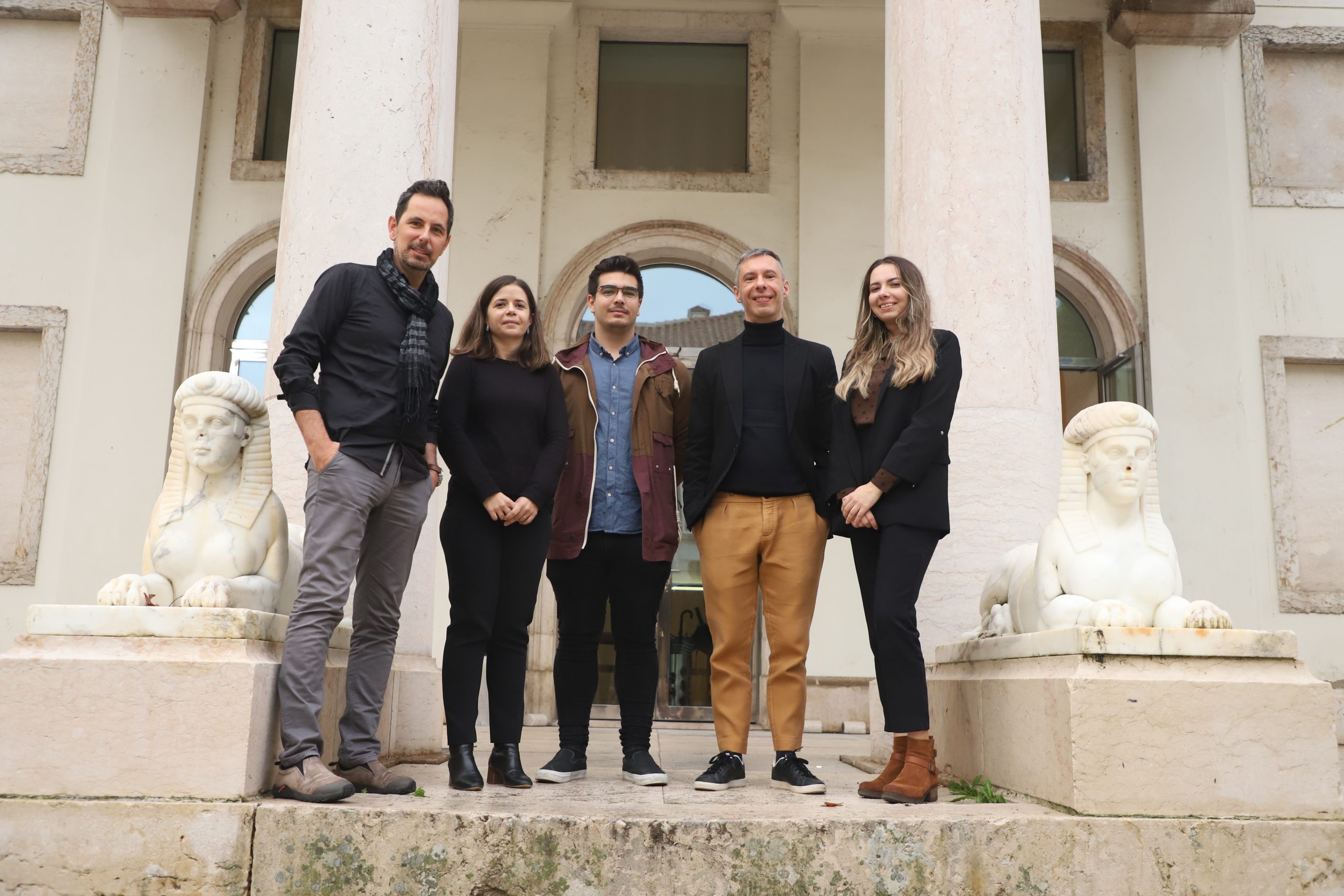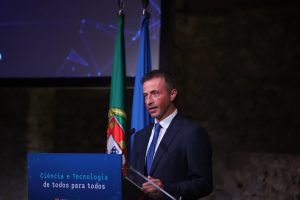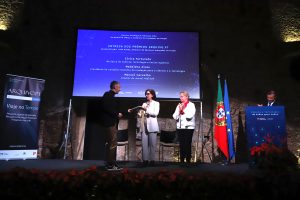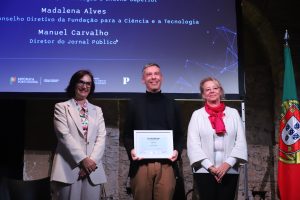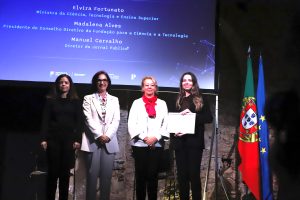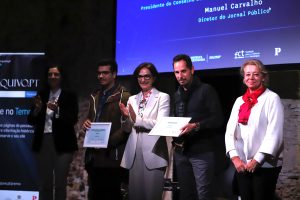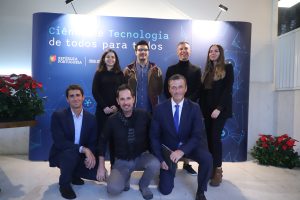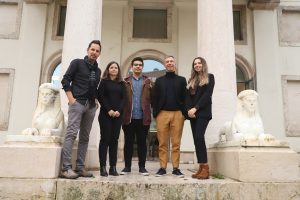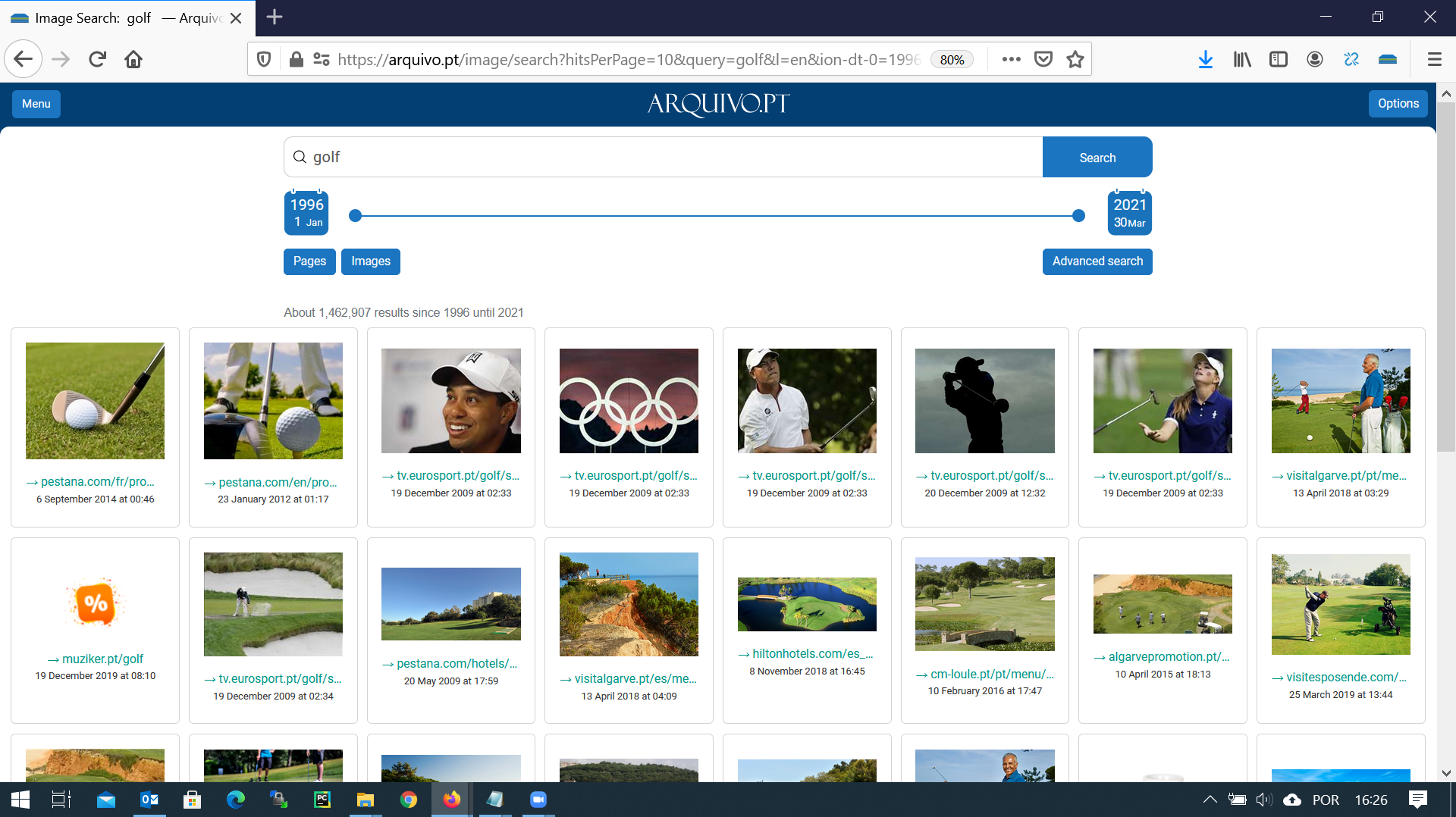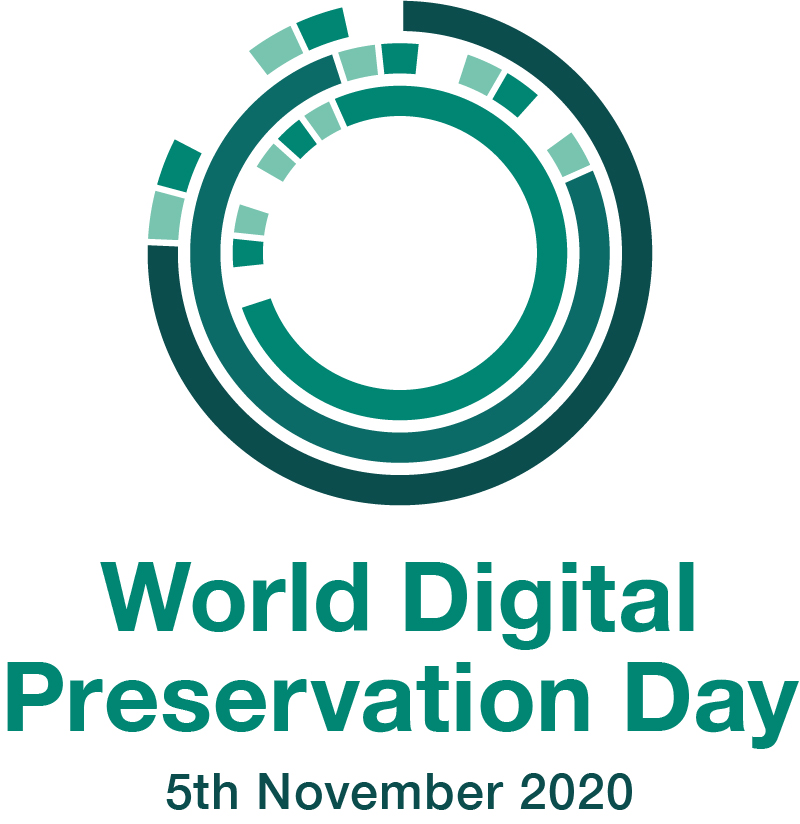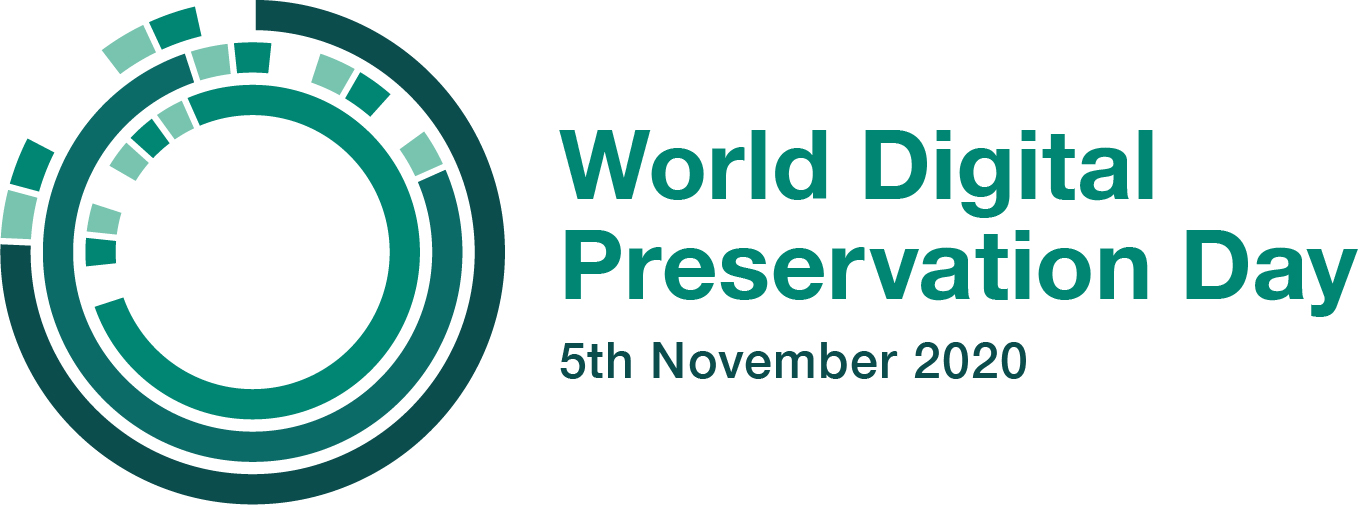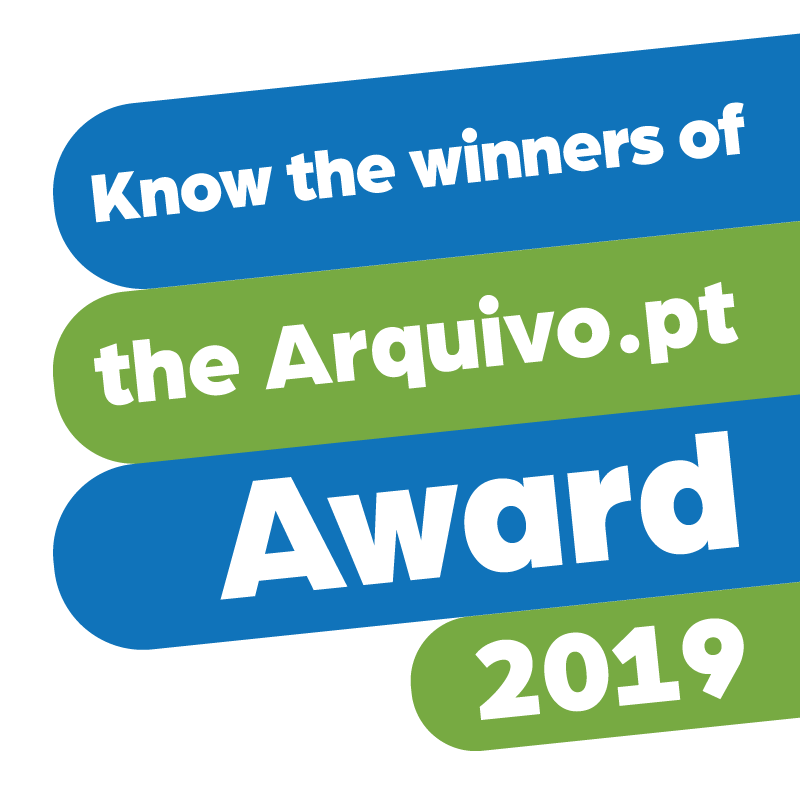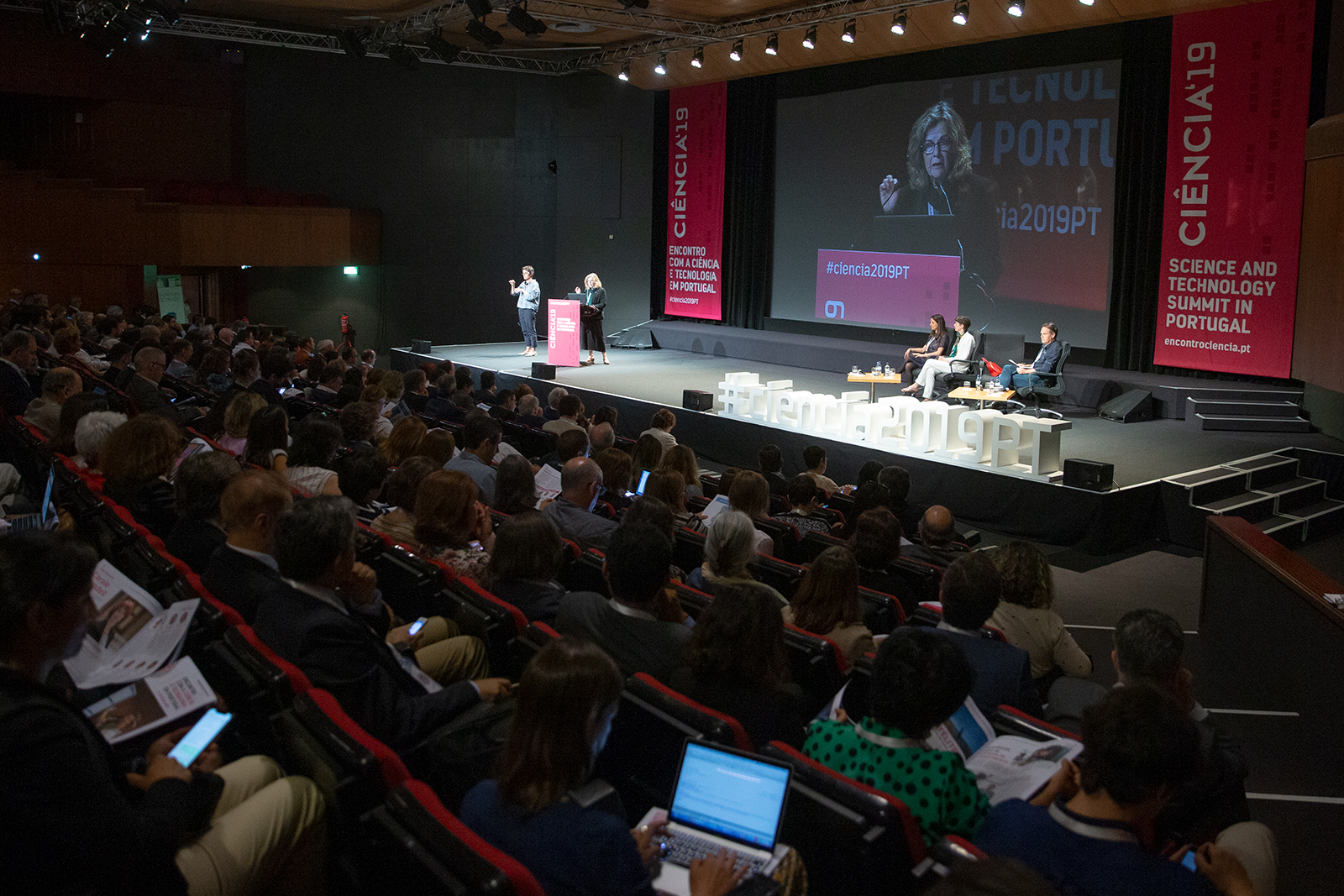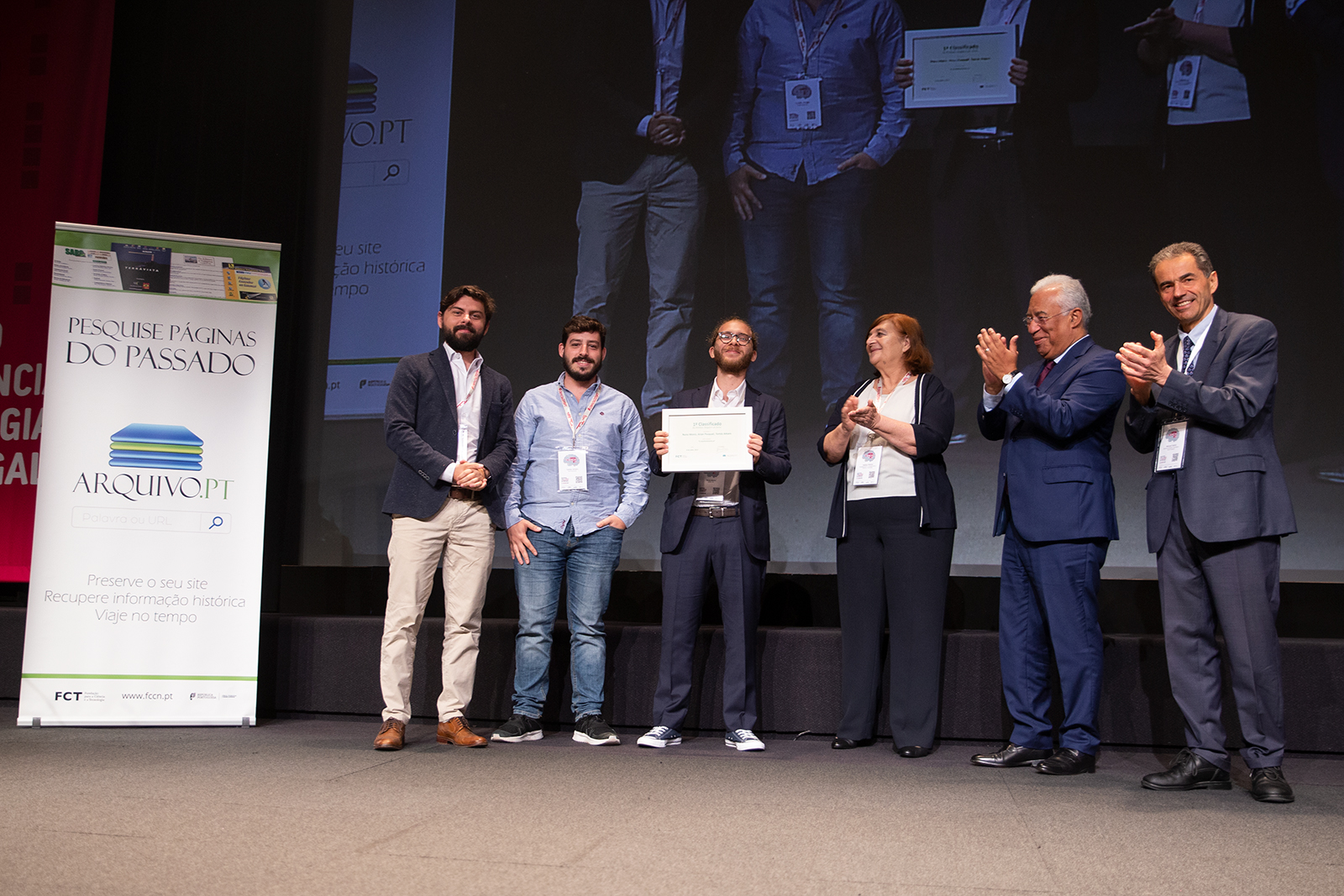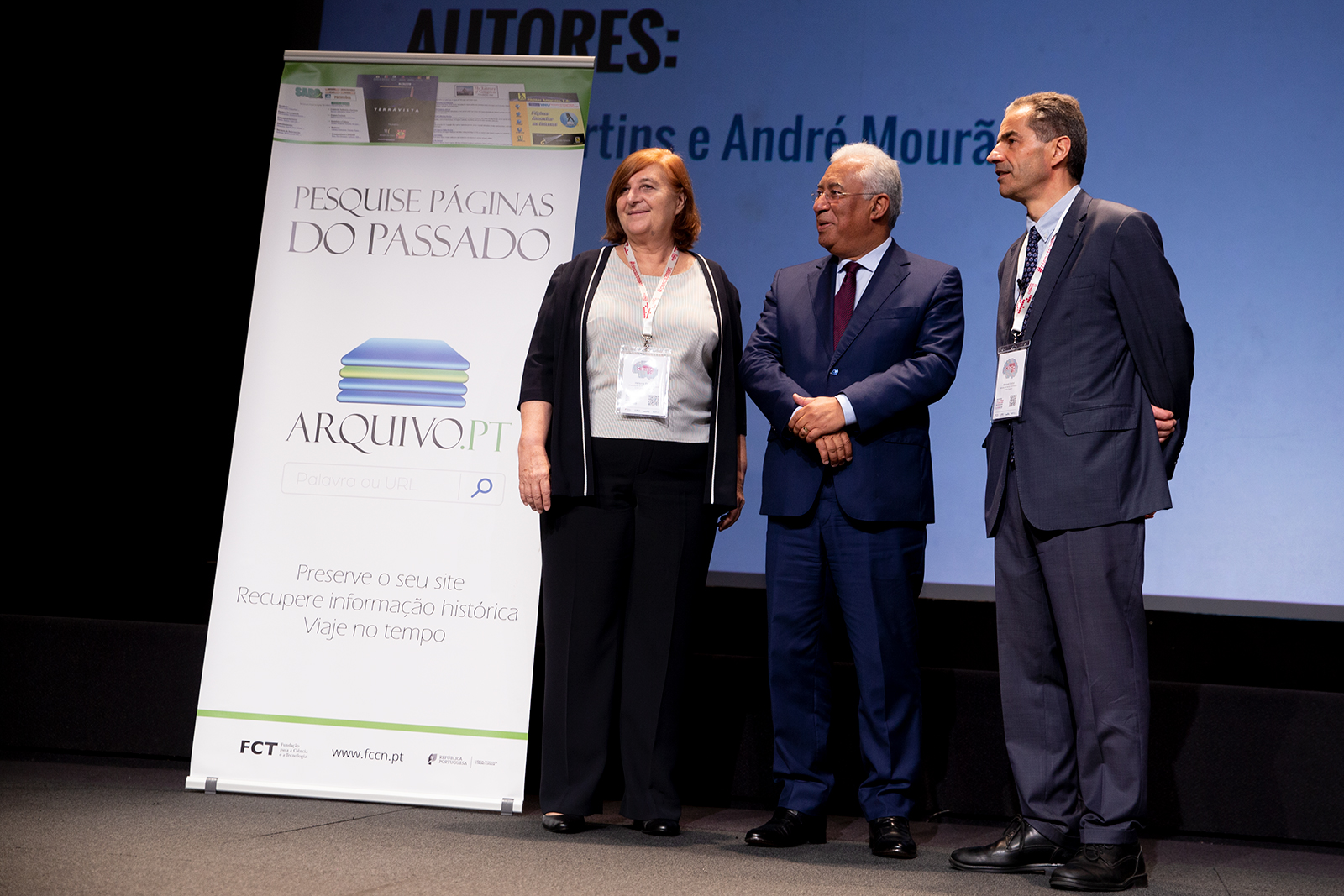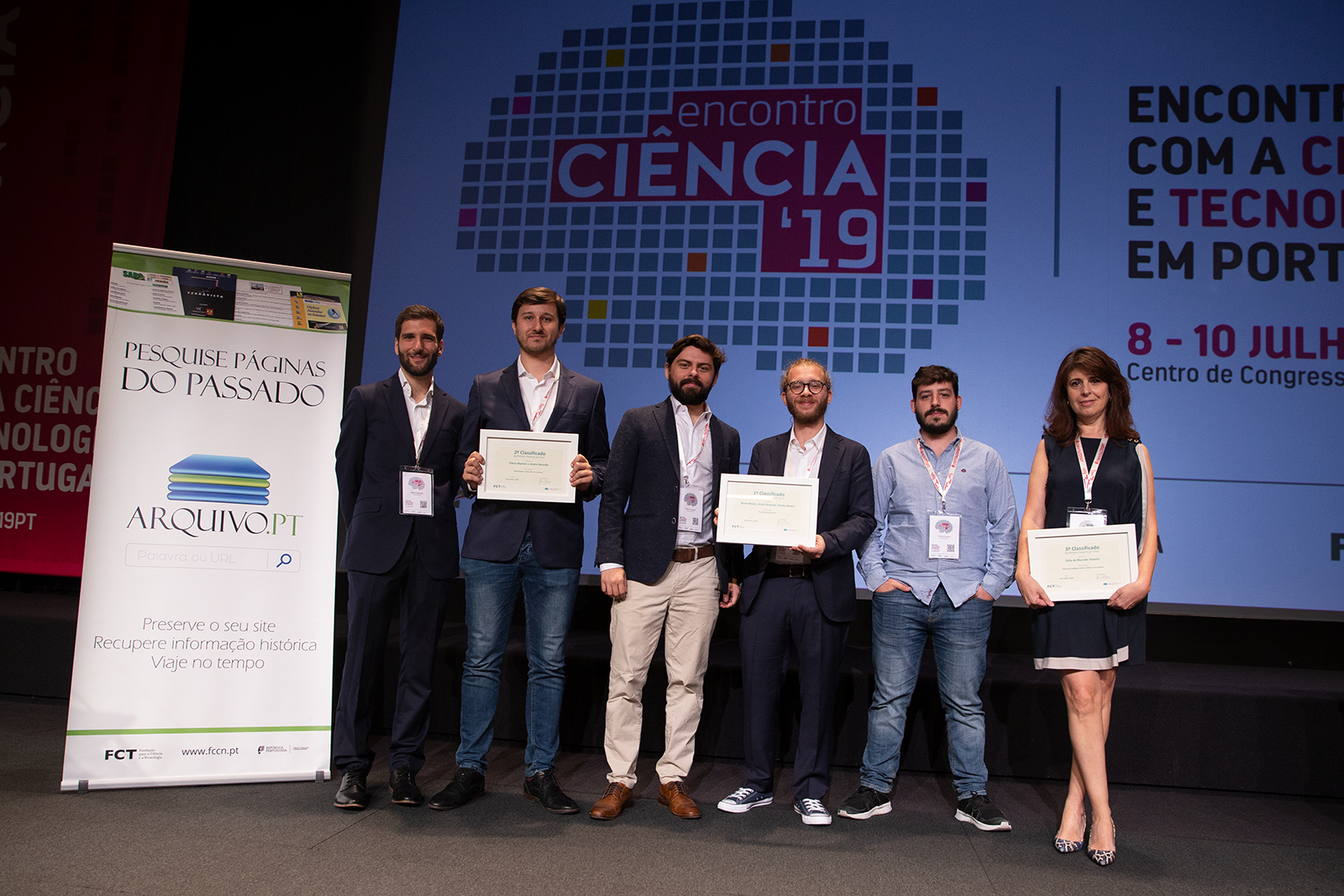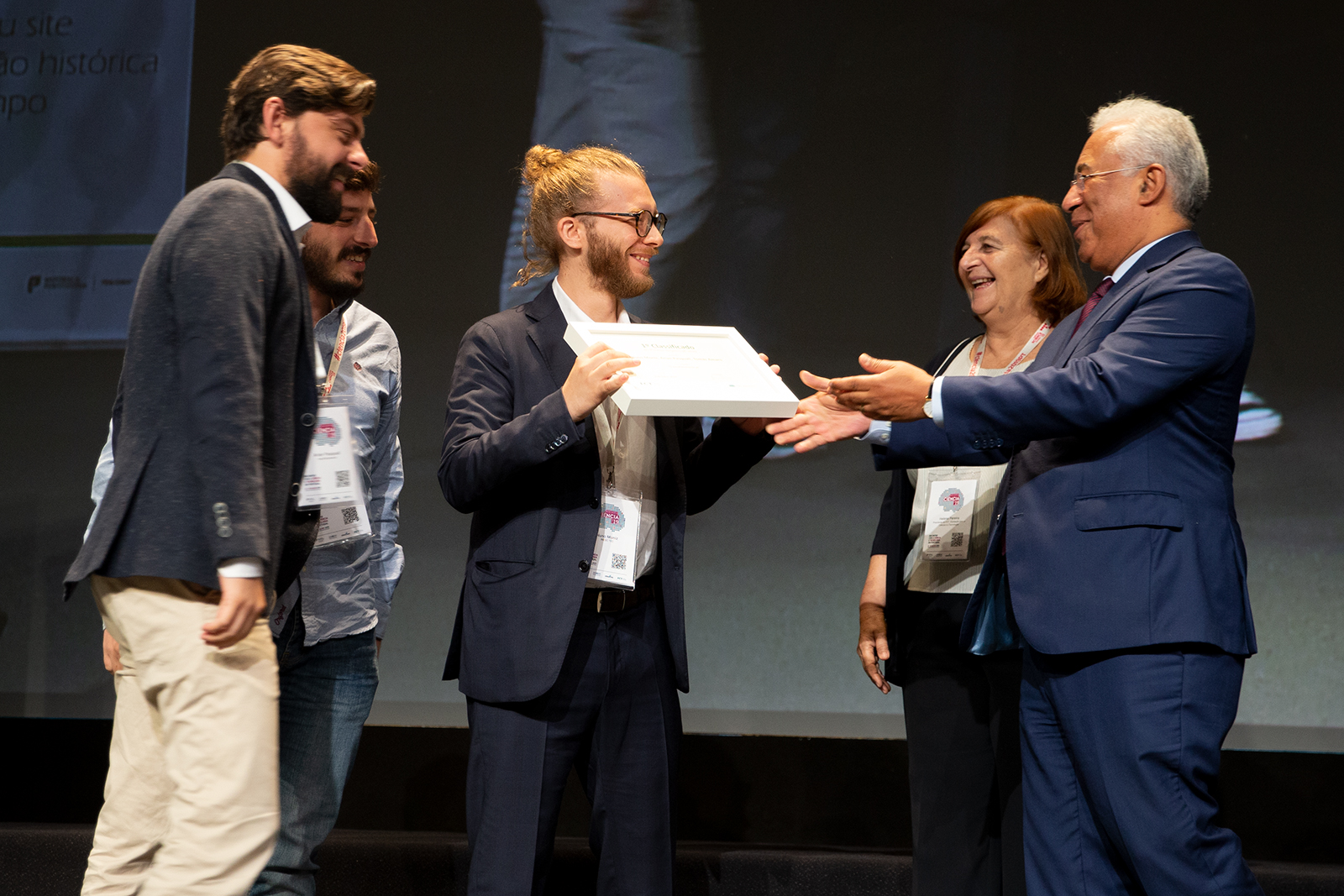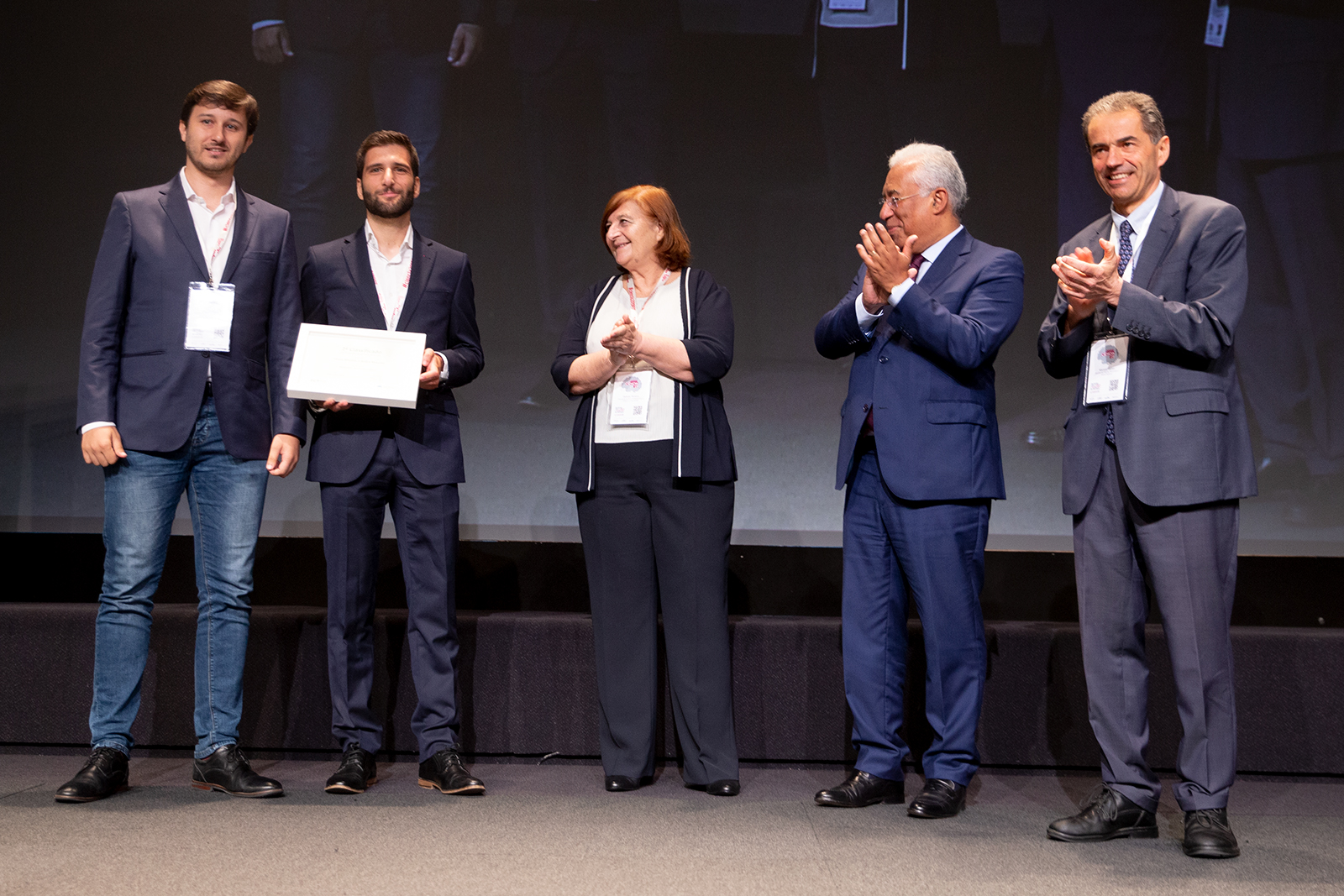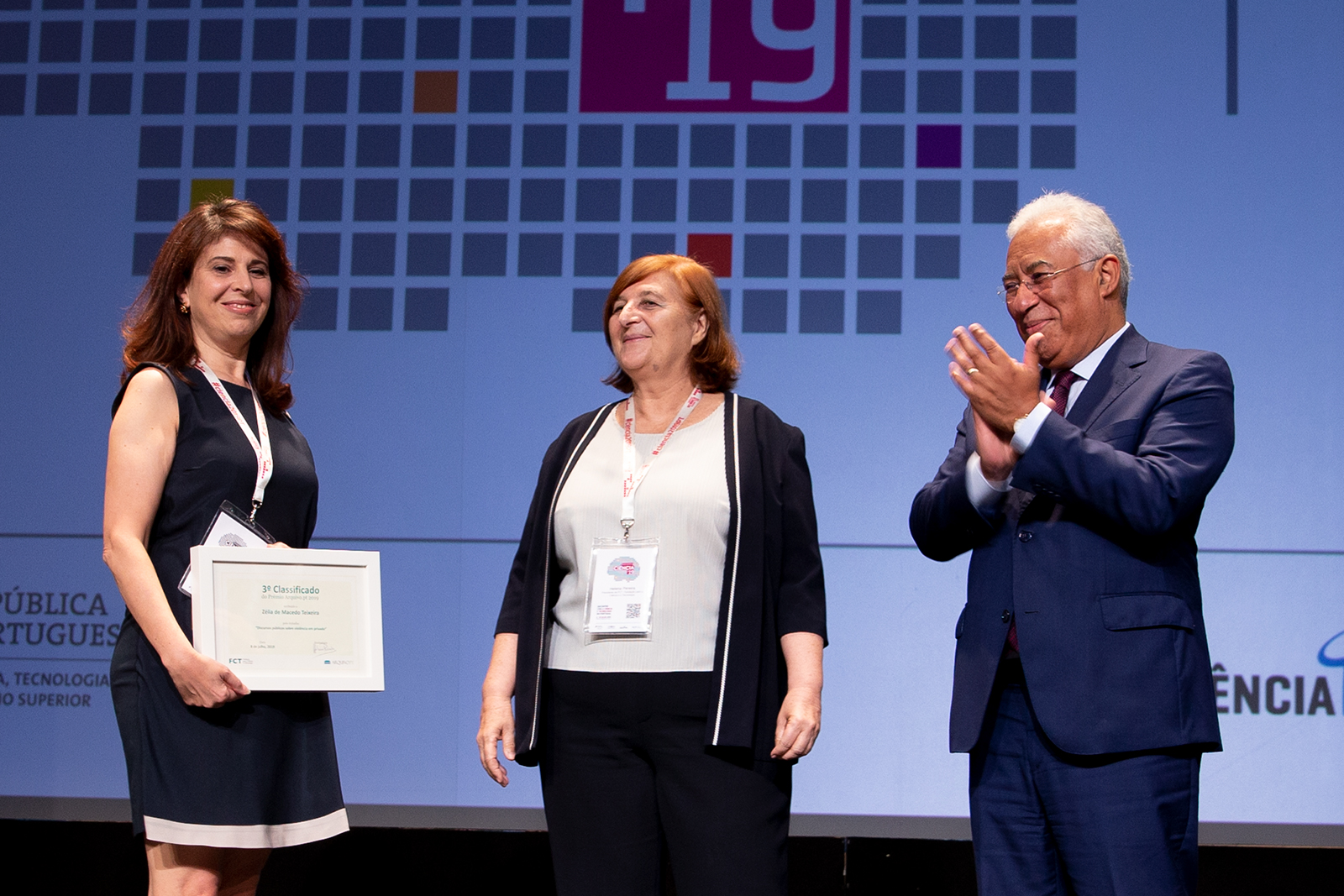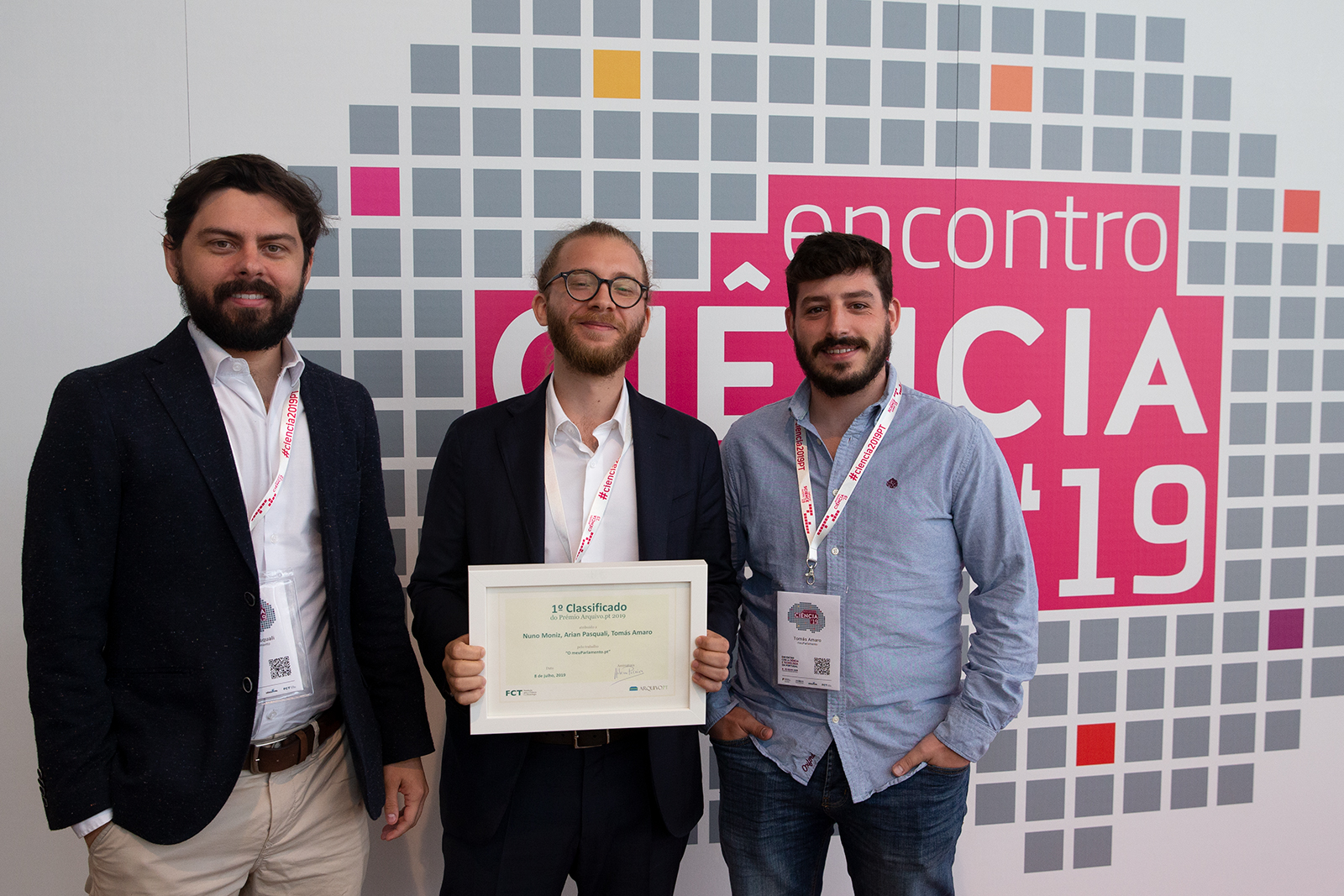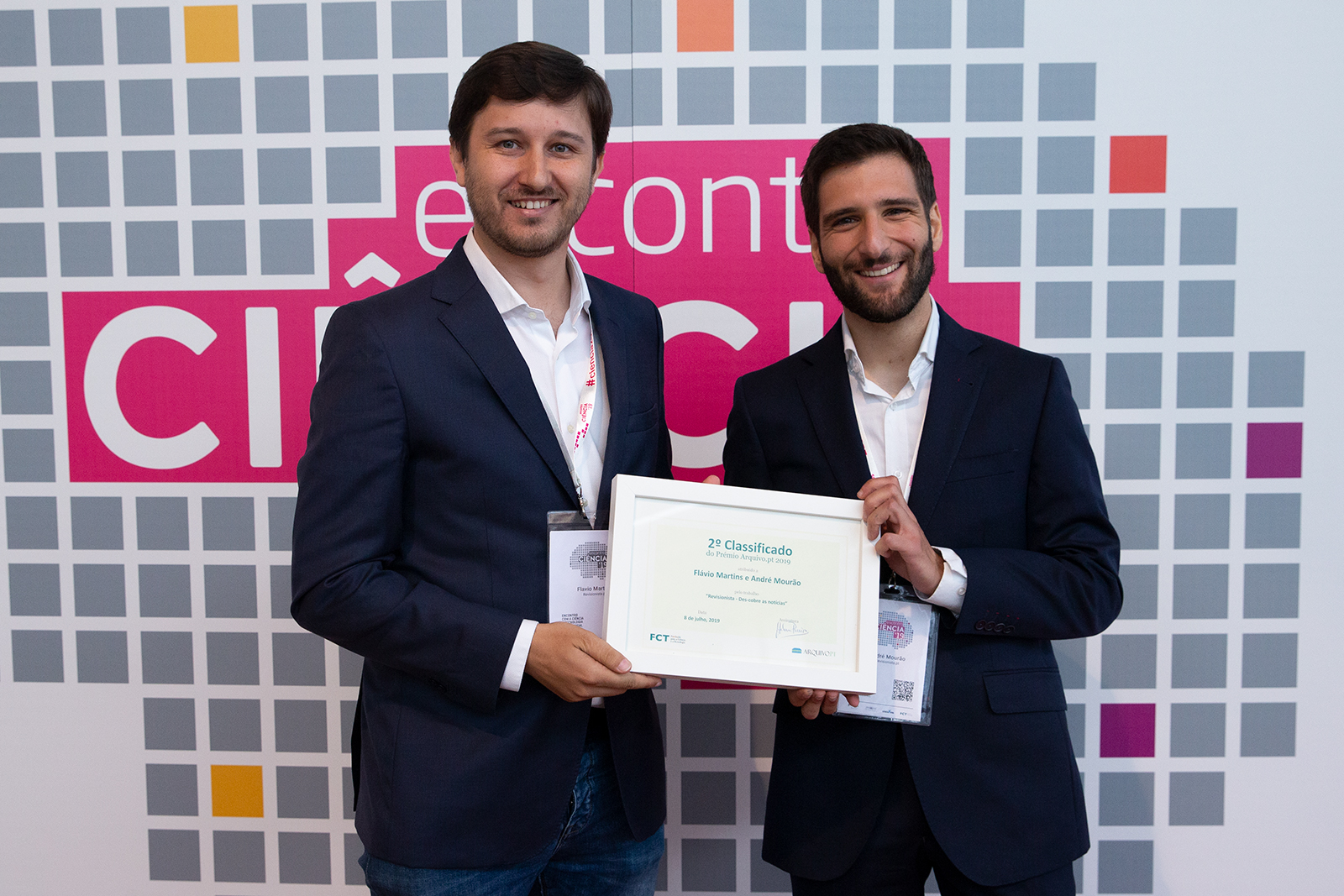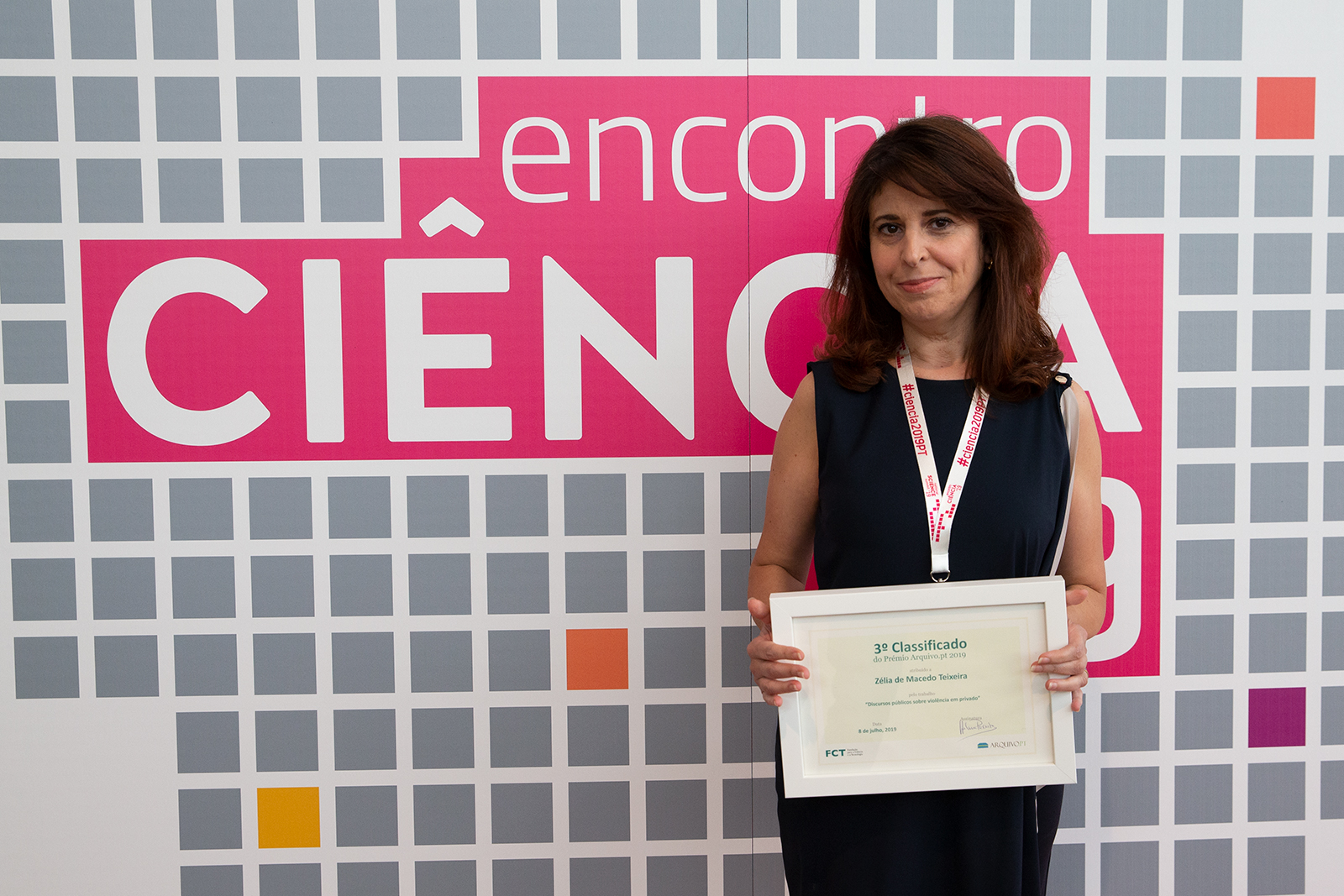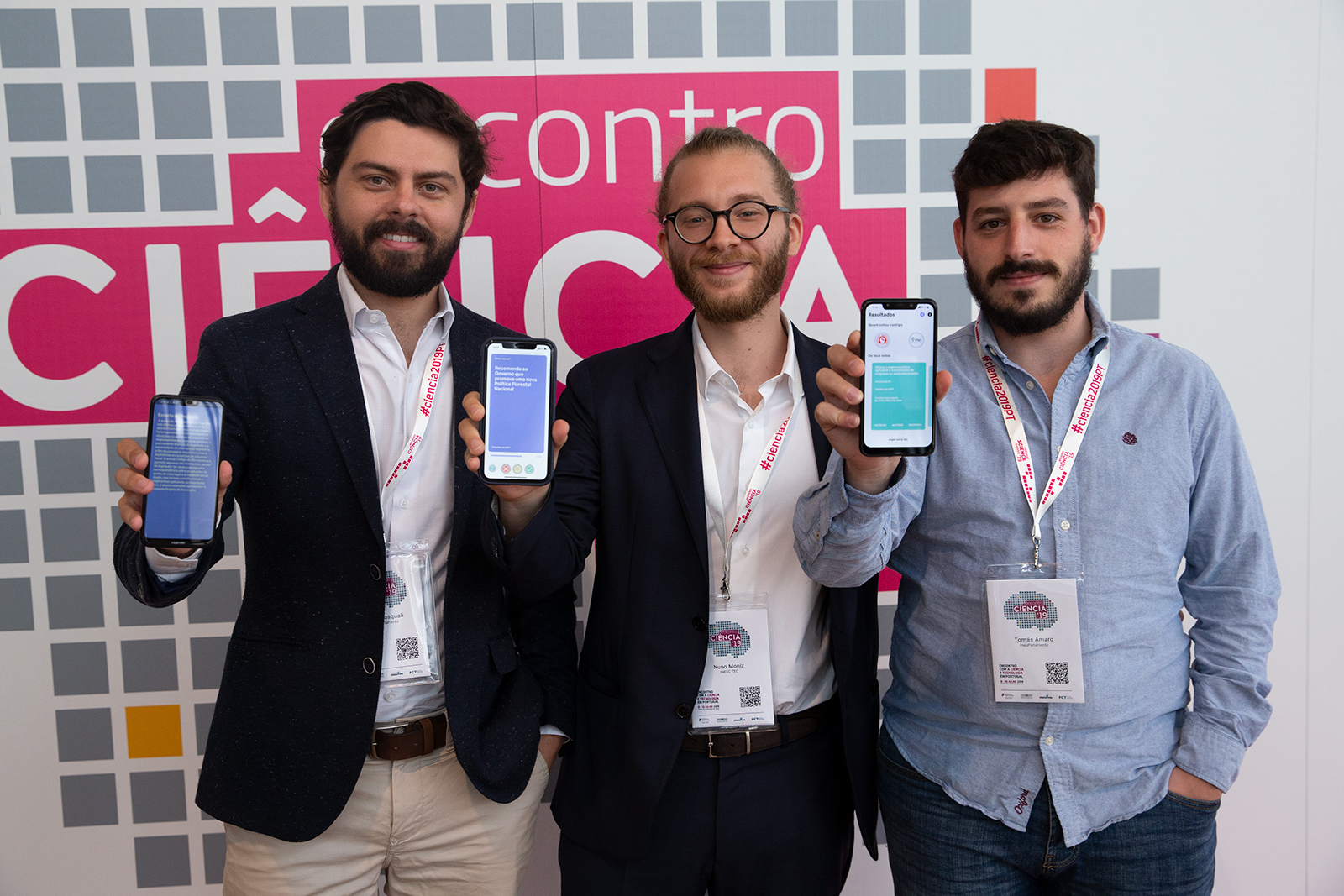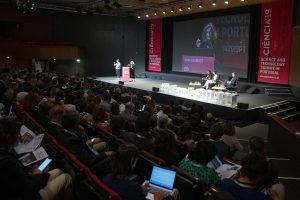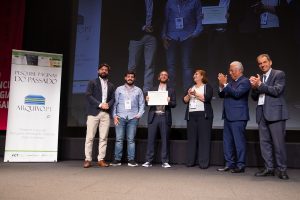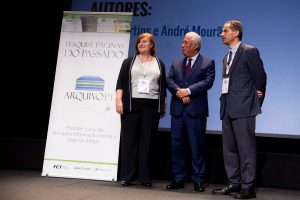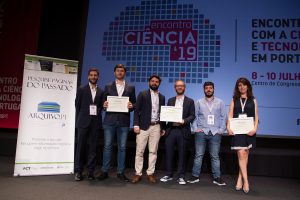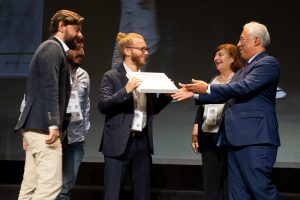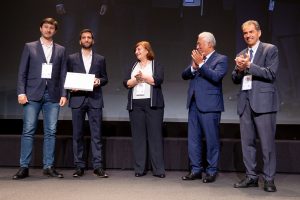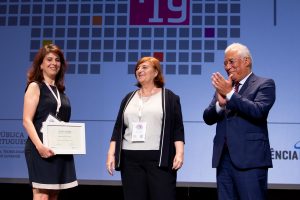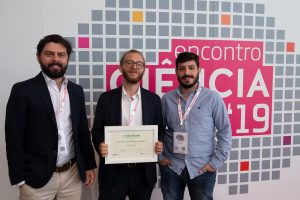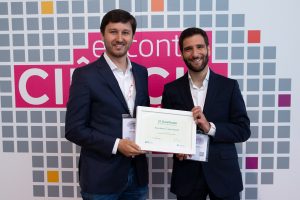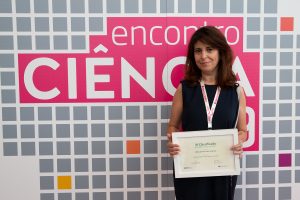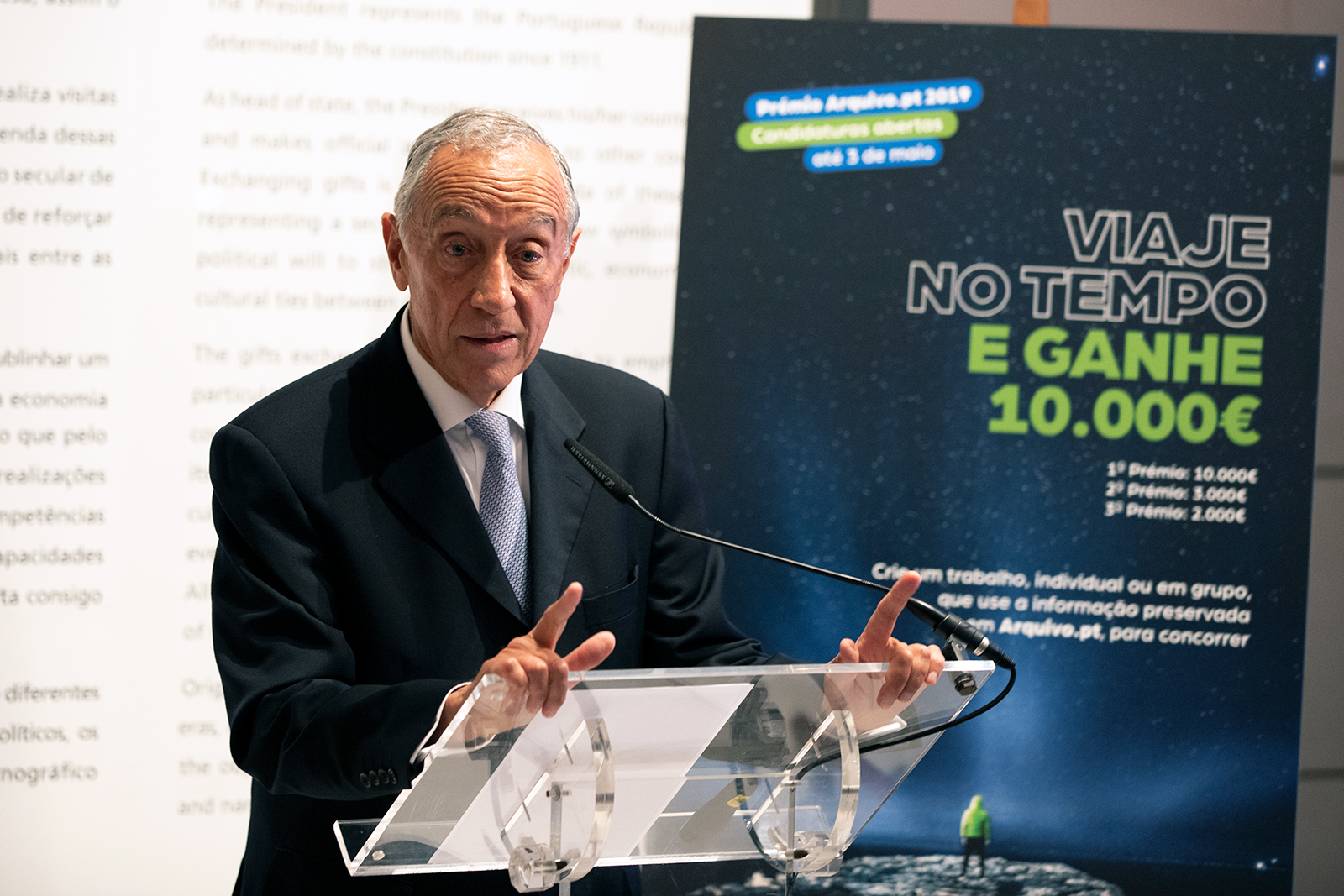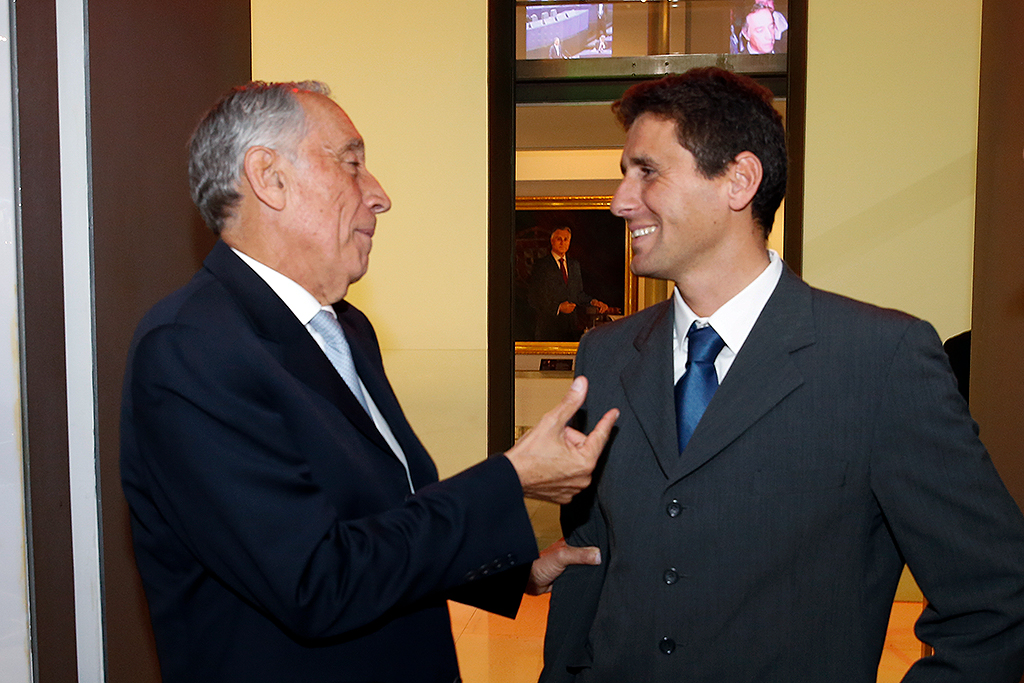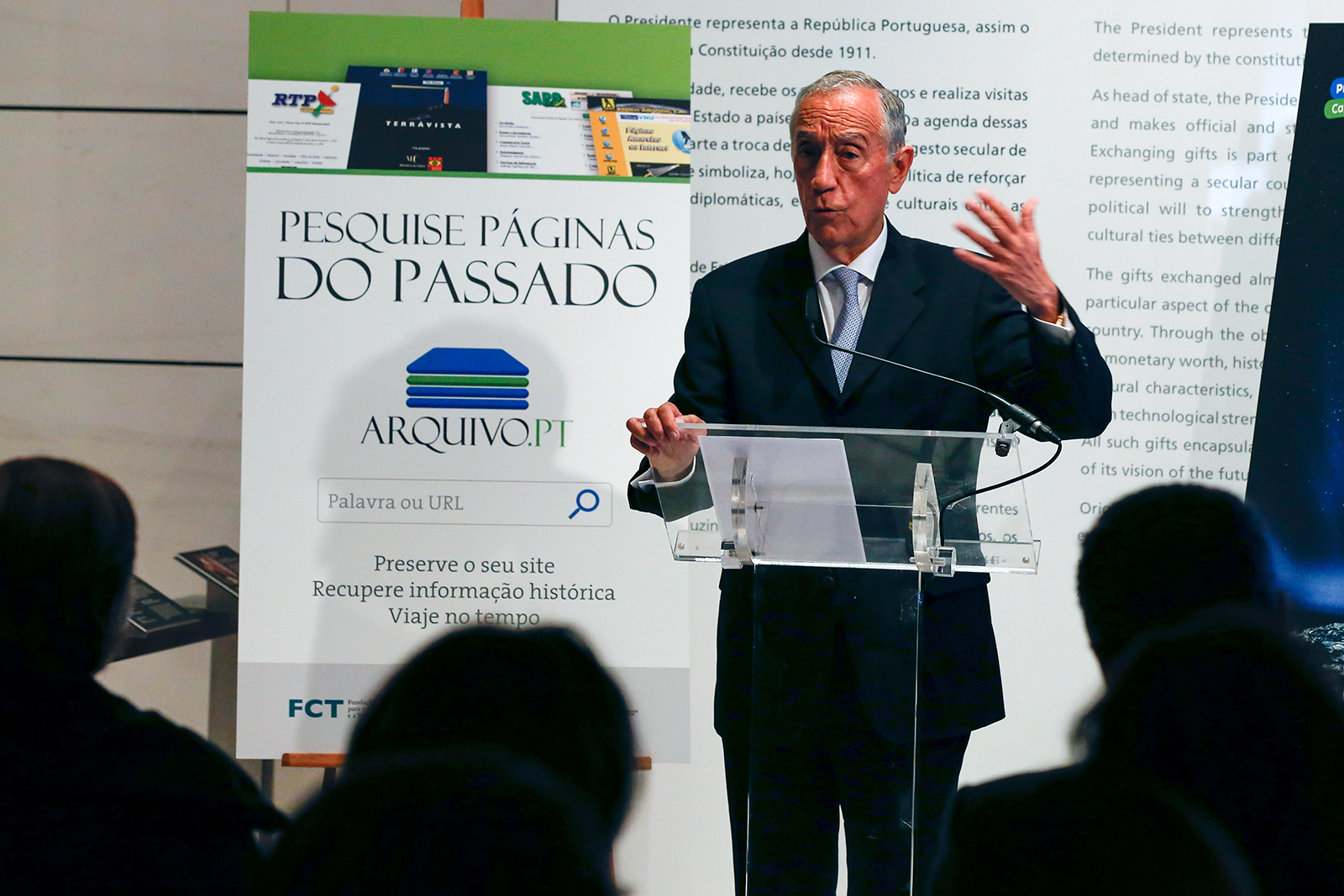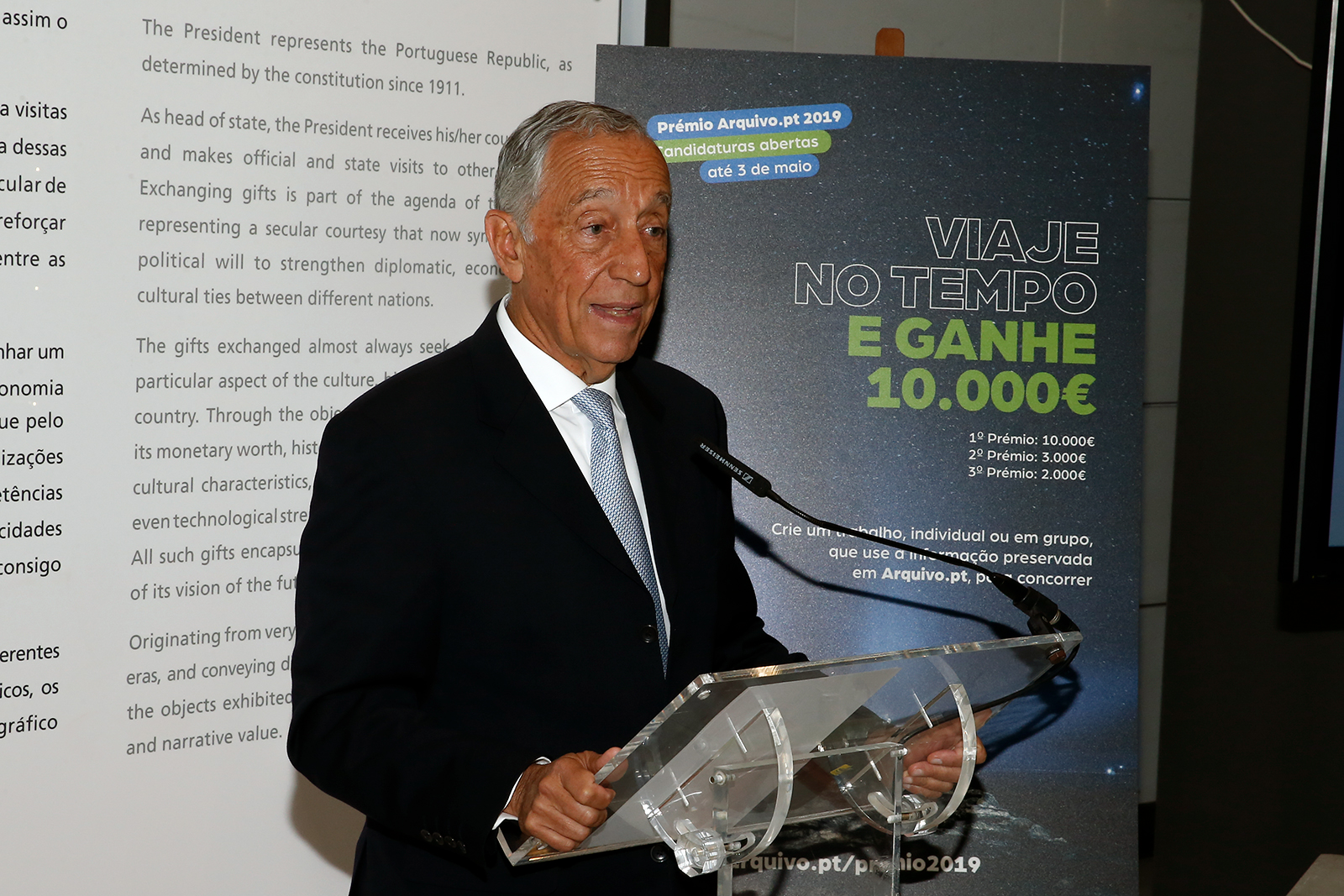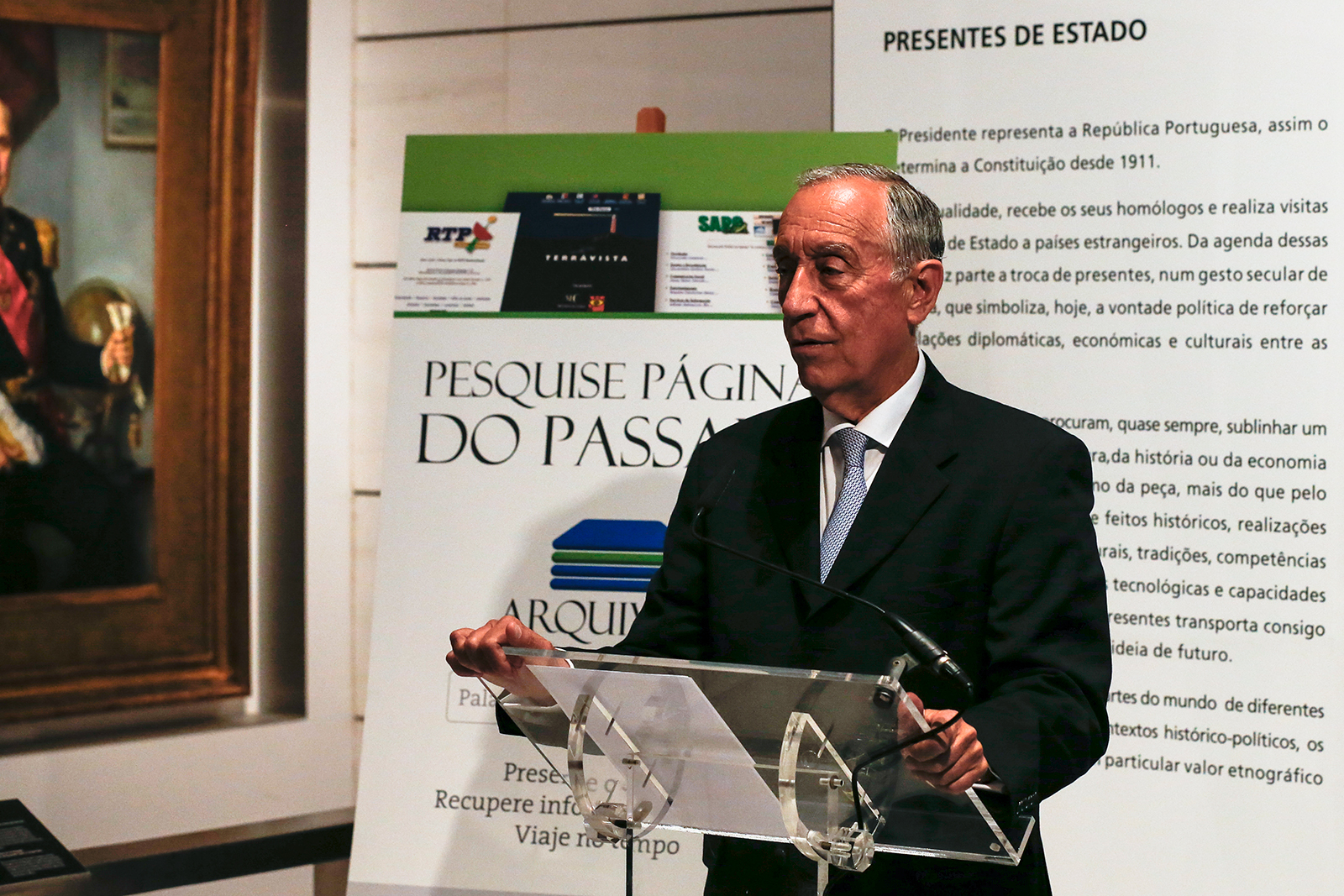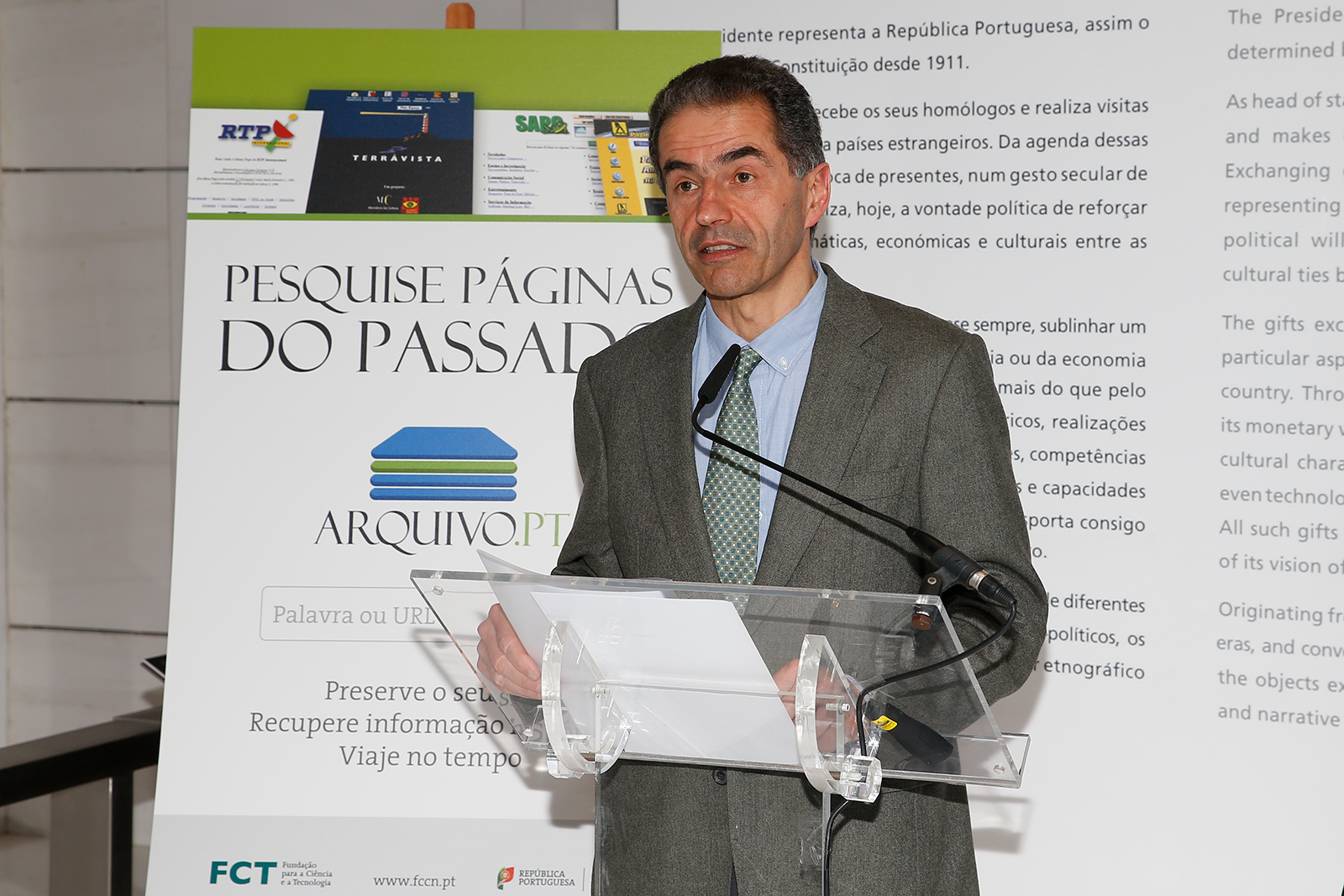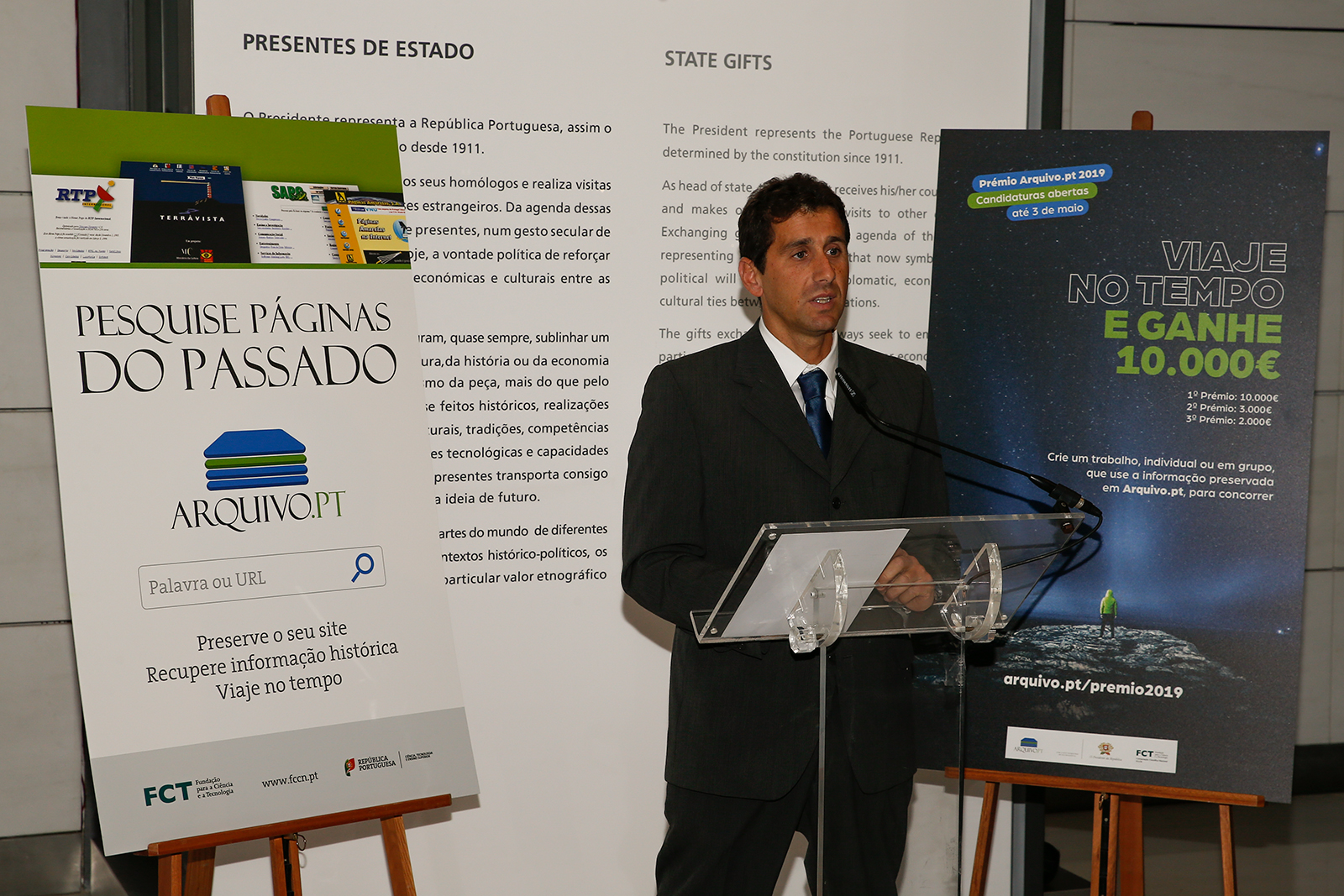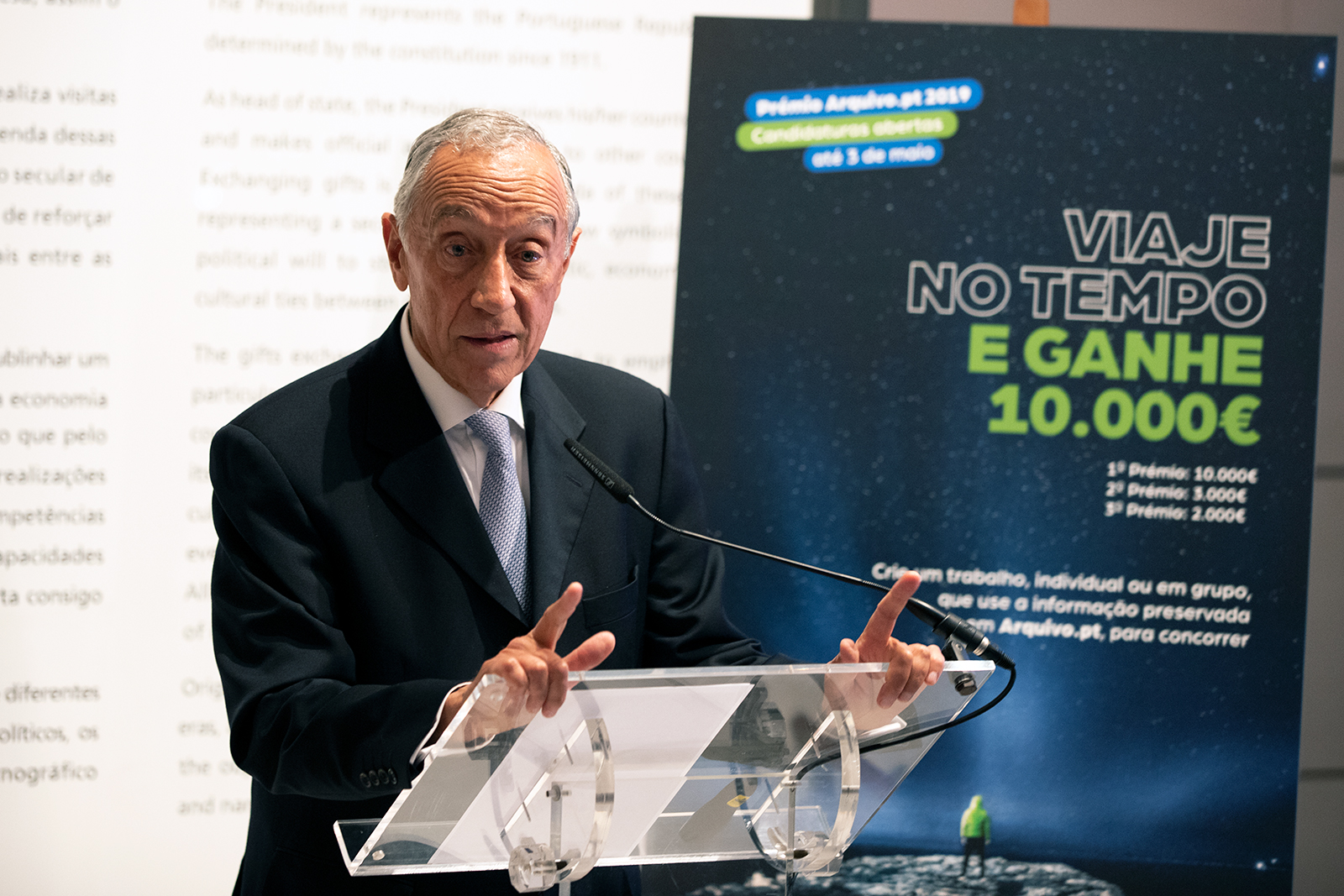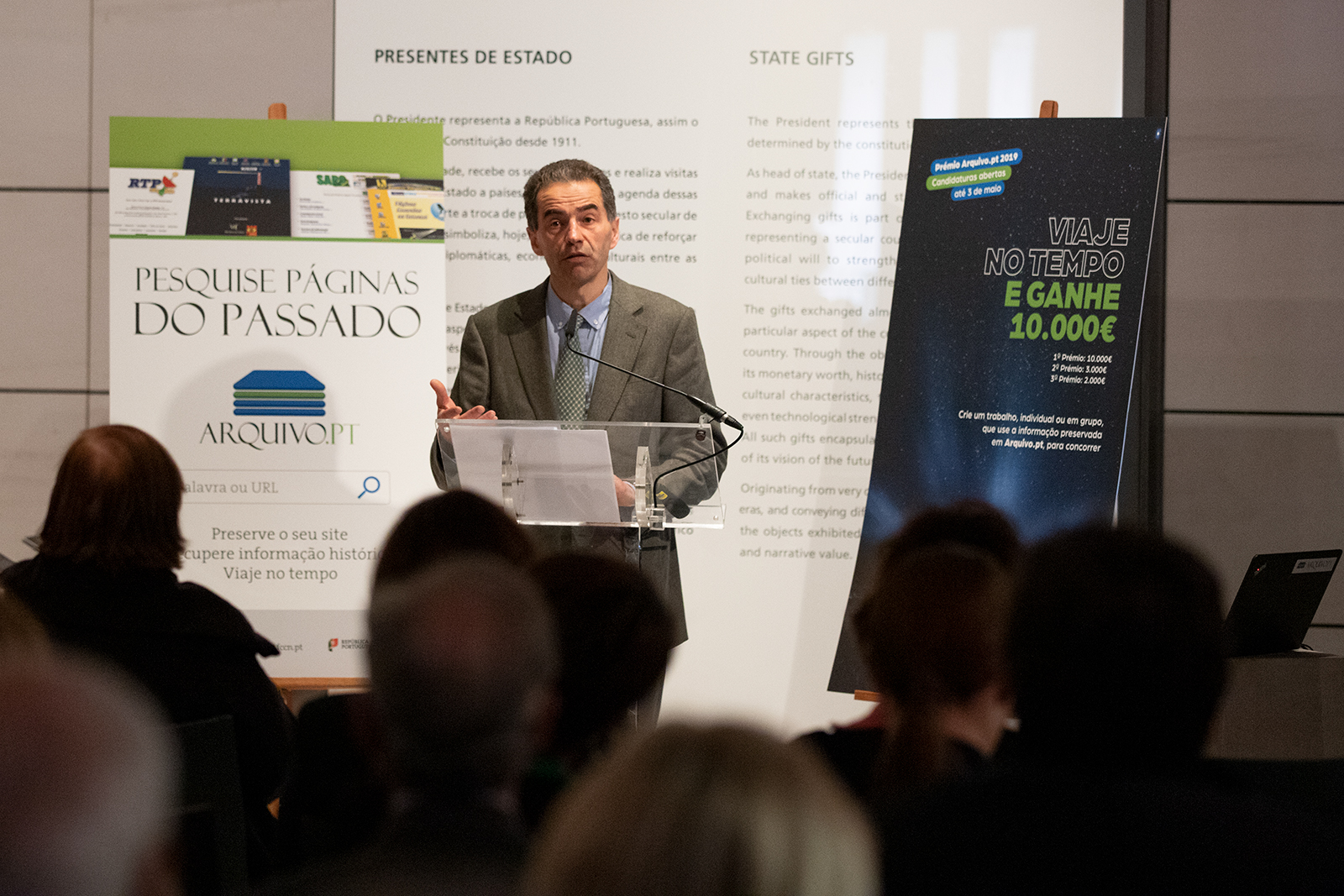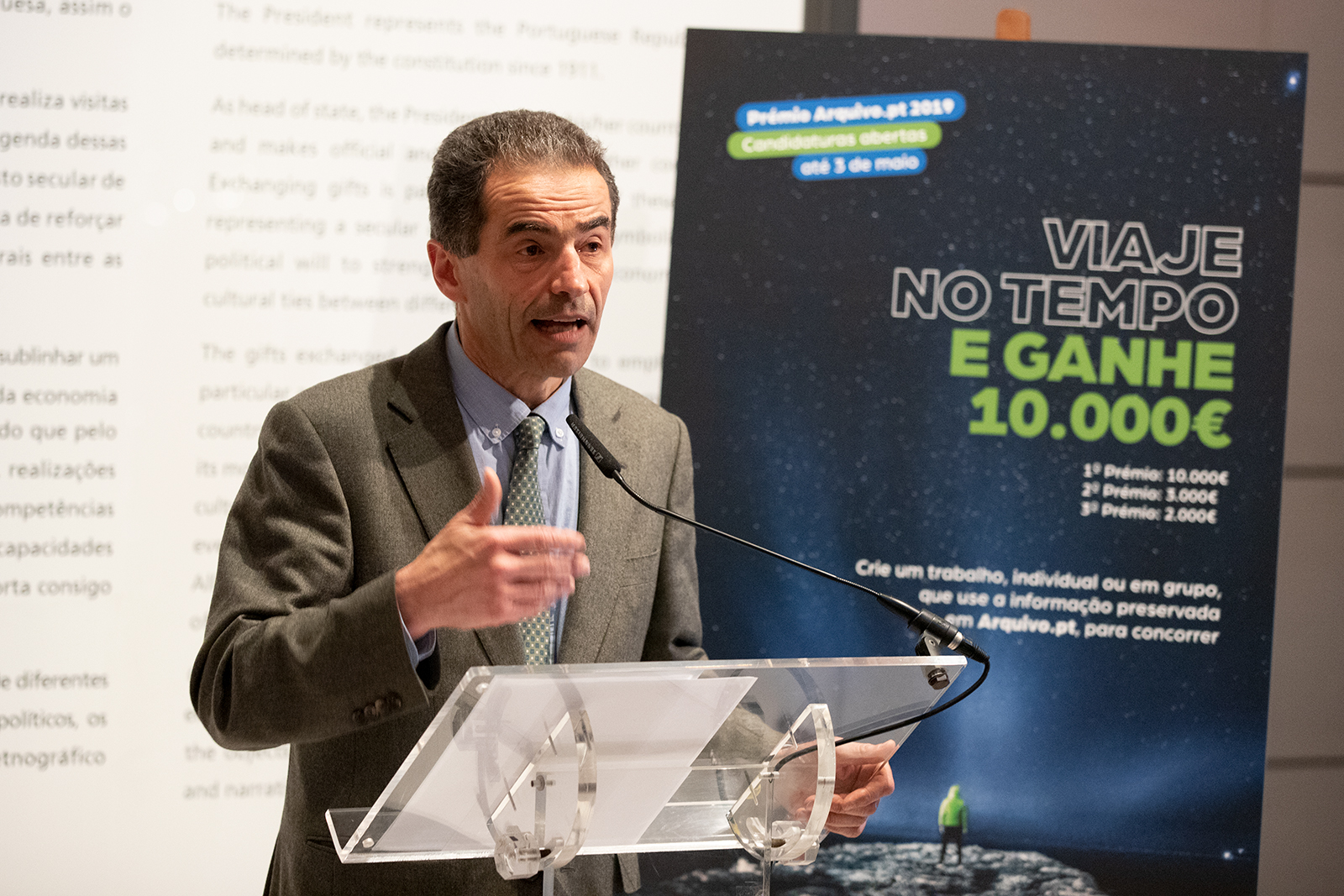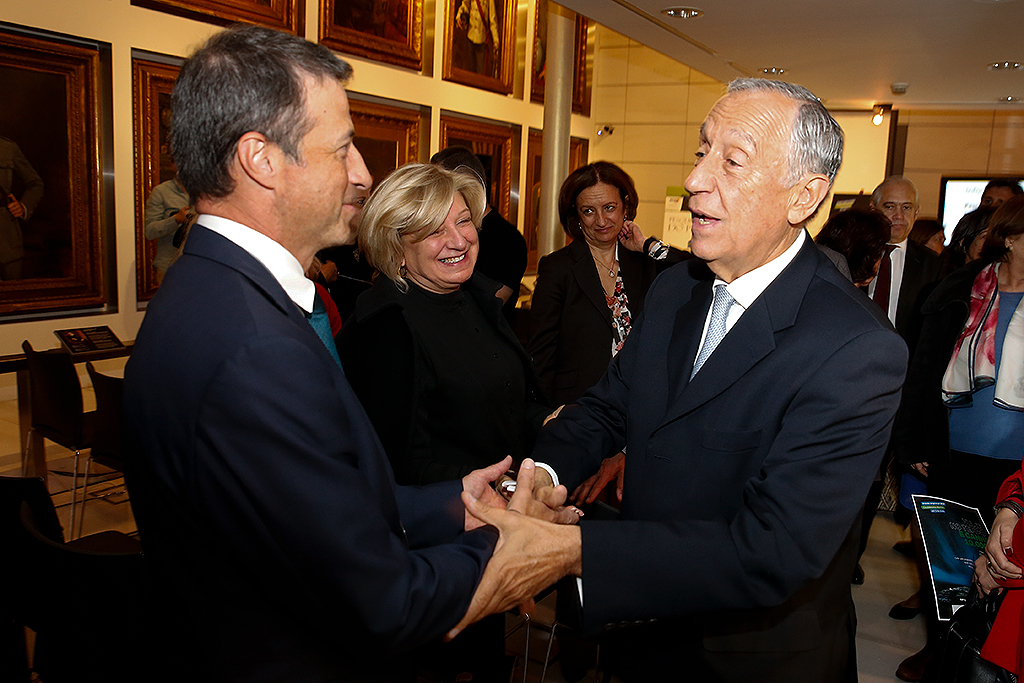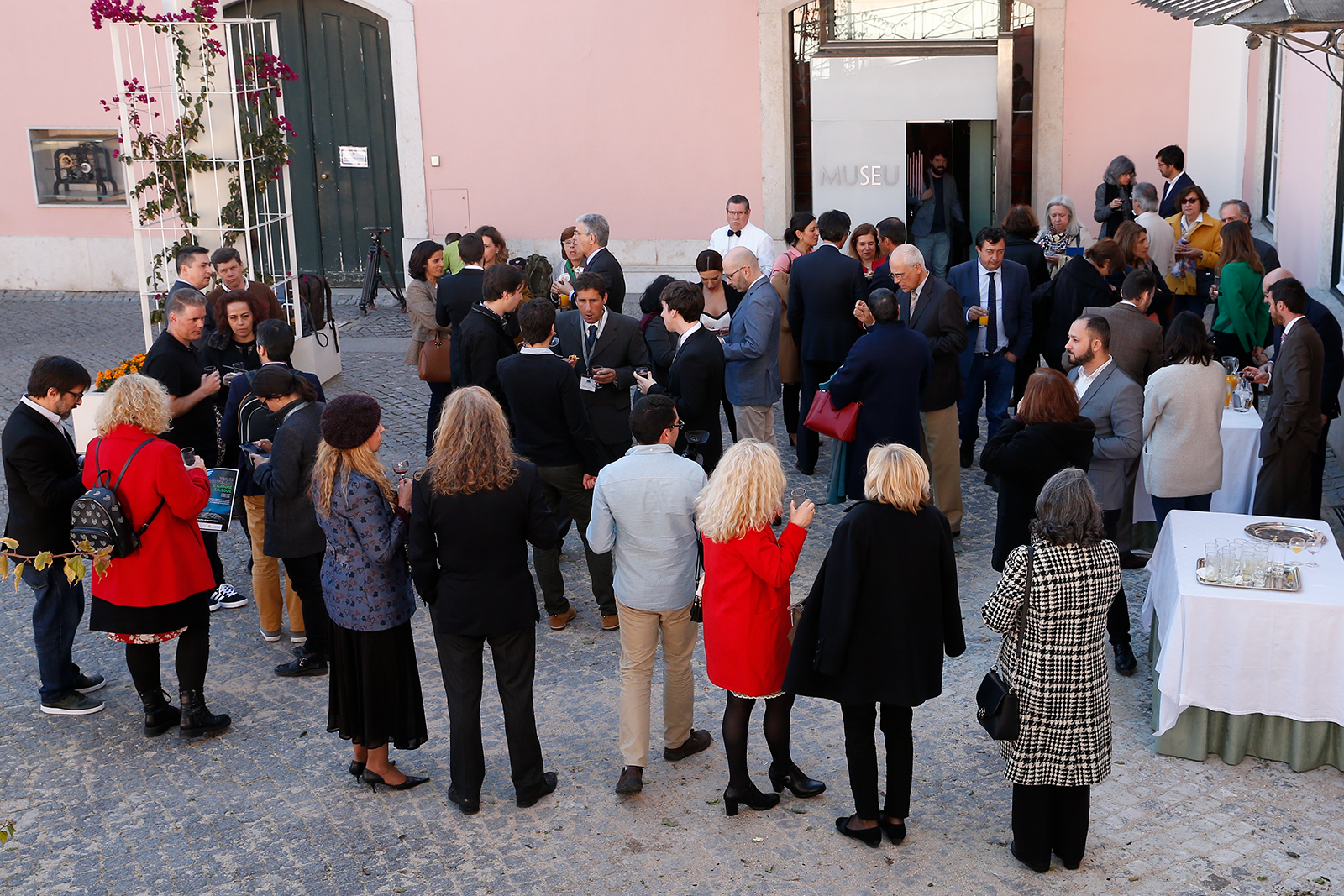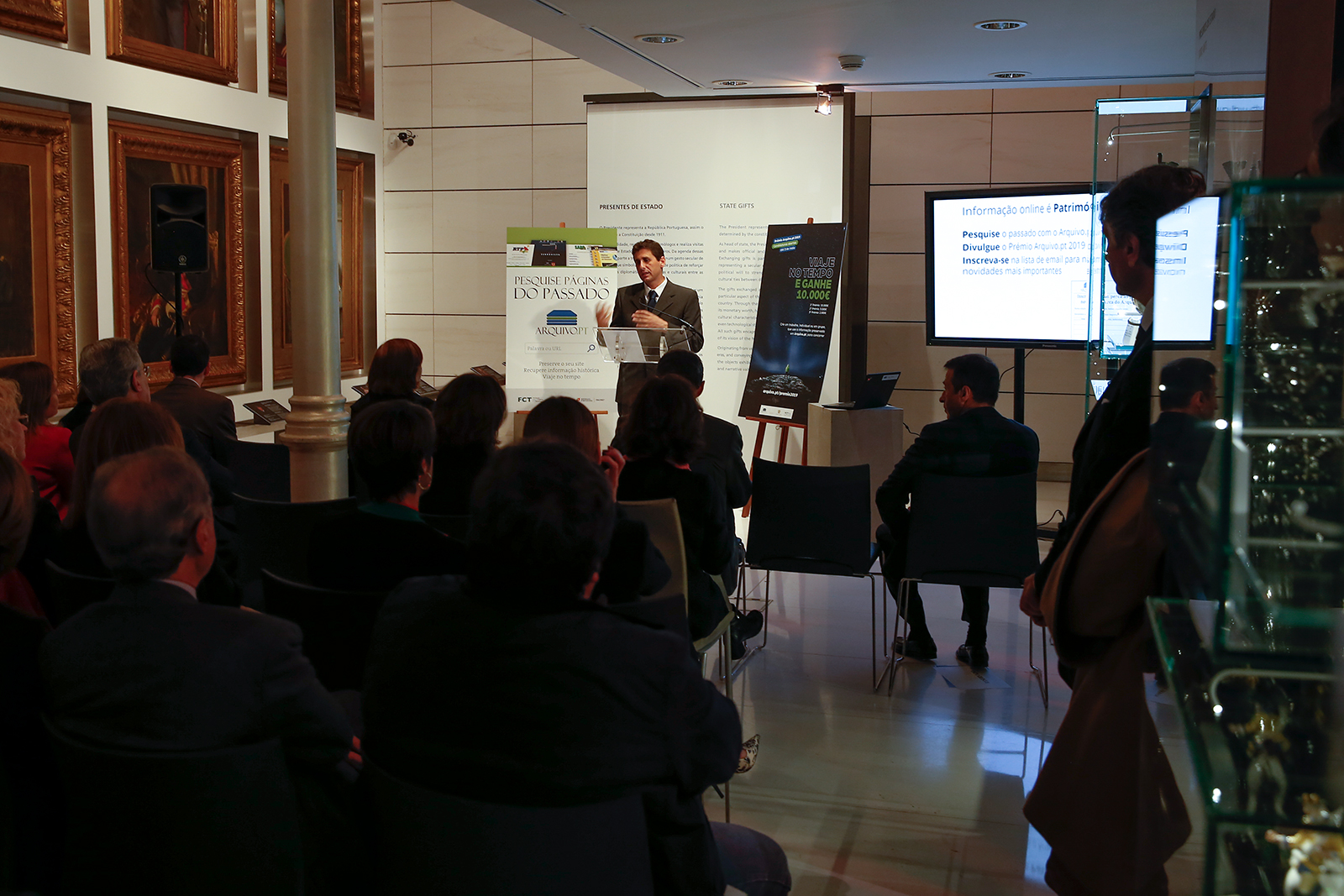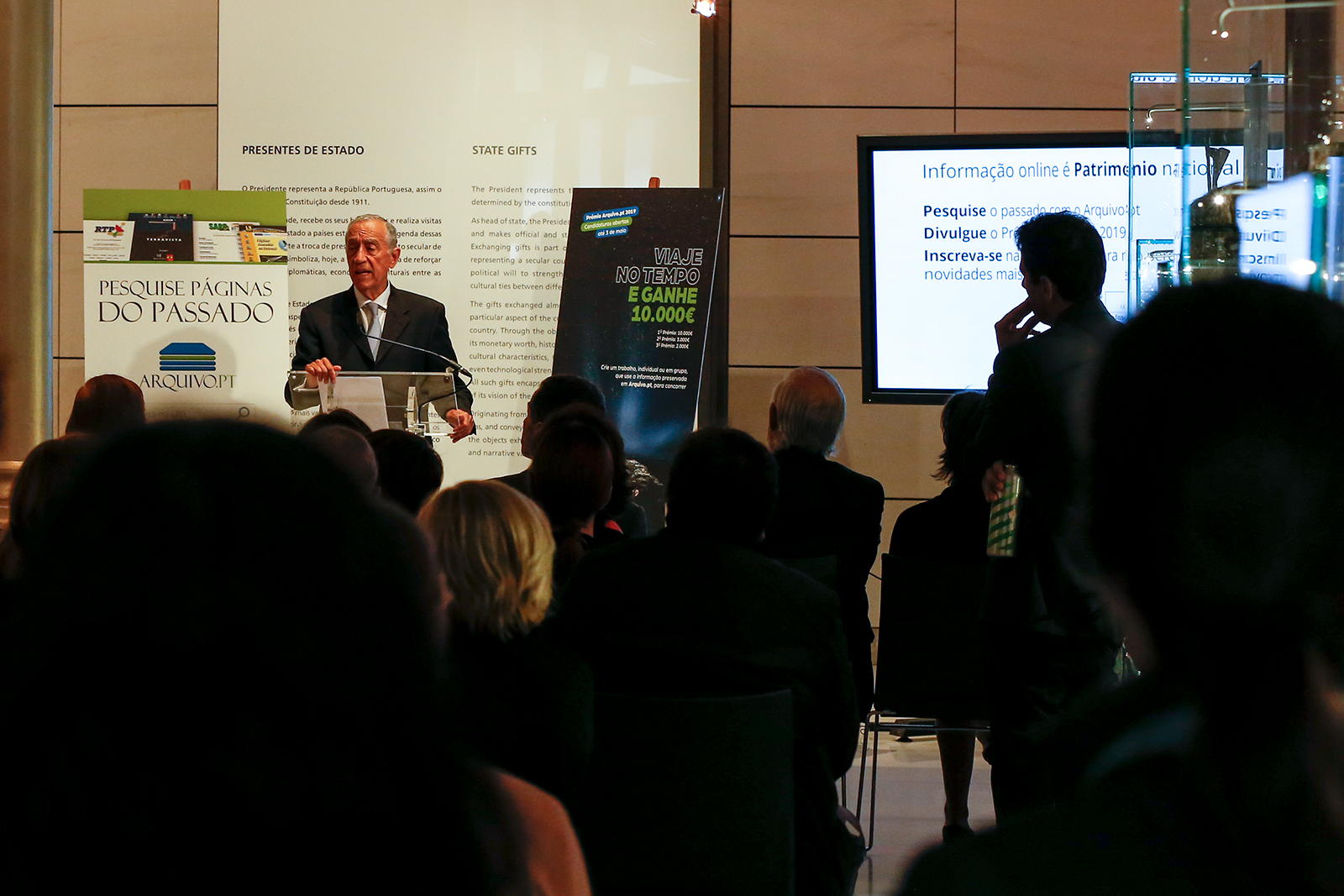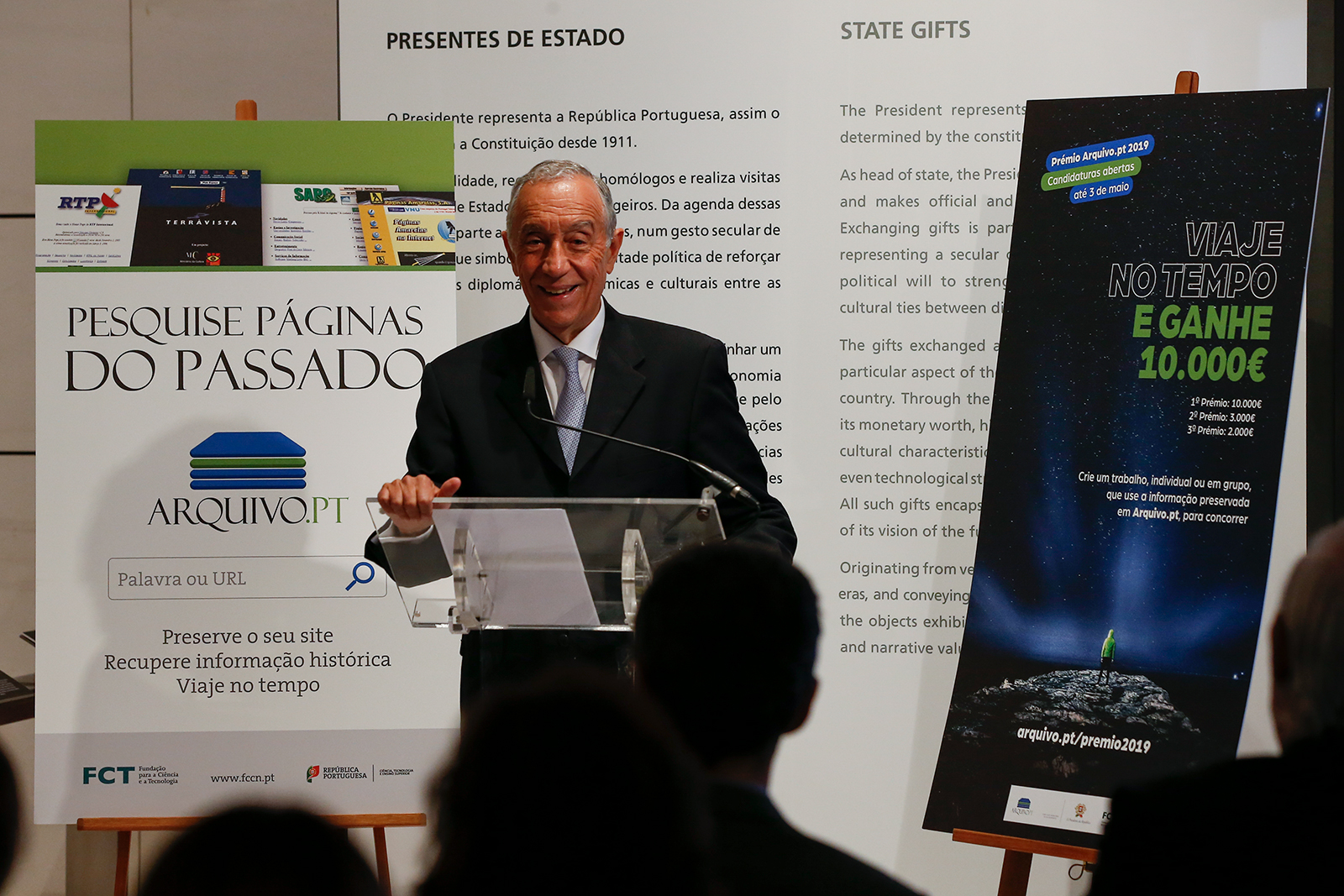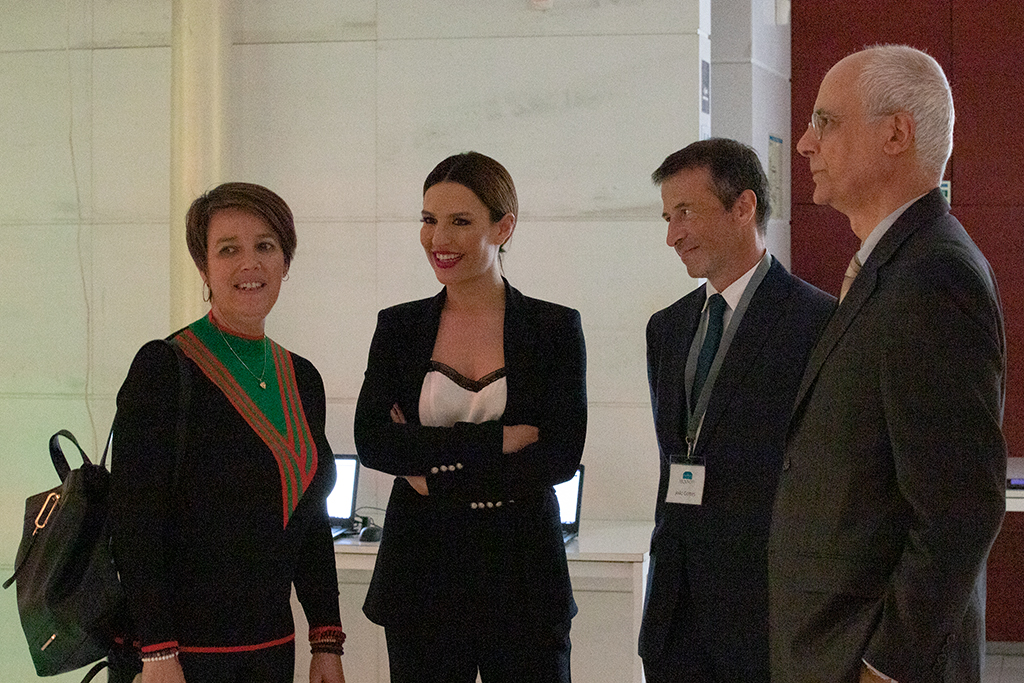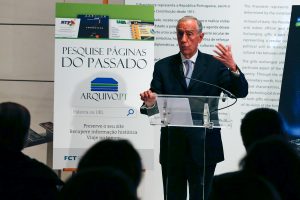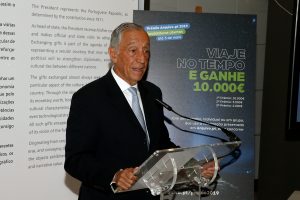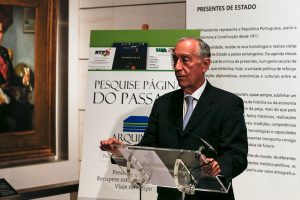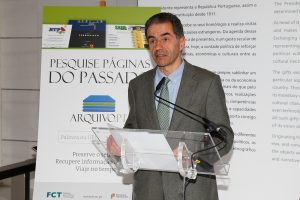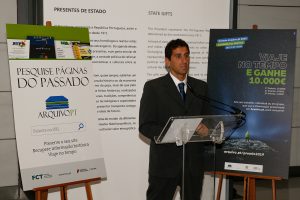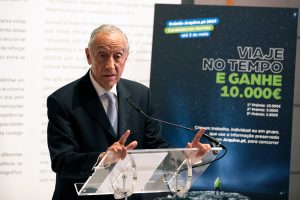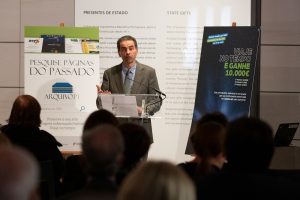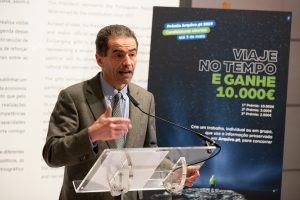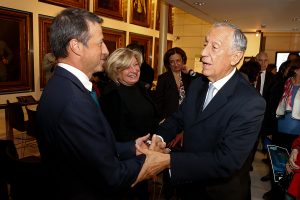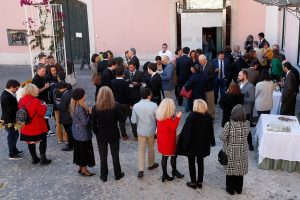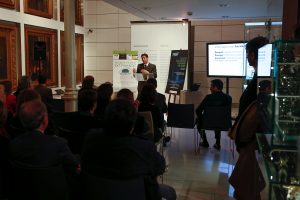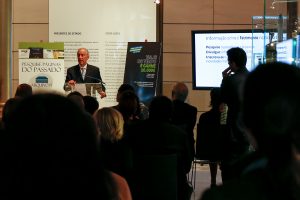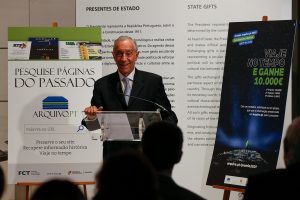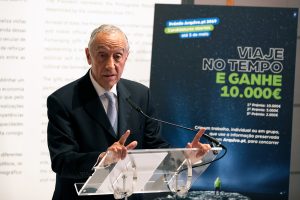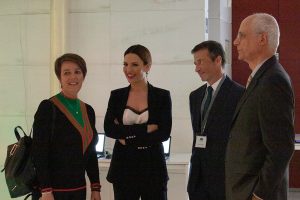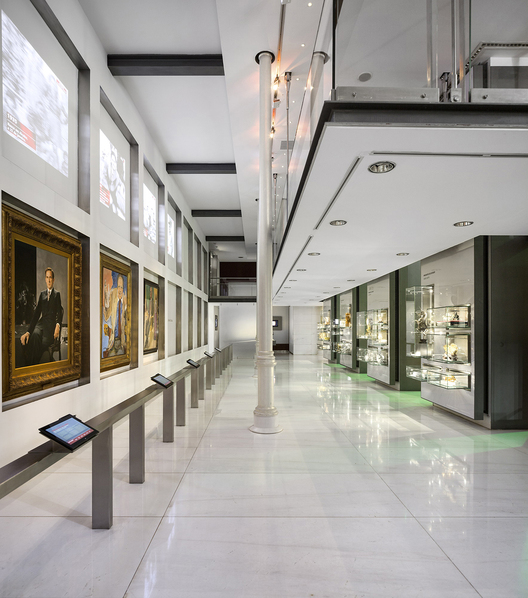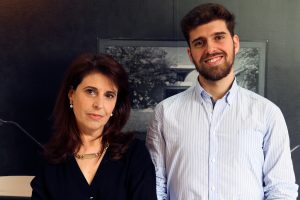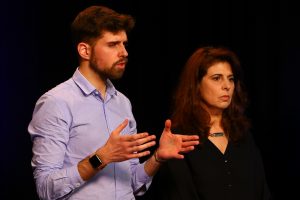Last updated on August 6th, 2024 at 05:16 pm
The winners of the Arquivo.pt Award 2023 were announced by the Público newspaper, the official communication partner of this edition, on 26 June.
40 applications were received.
The award ceremony tooke place during the closing session of the Encontro Ciência (Portuguese Science Summit), on July 7, at Aveiro University.
1st place – “Viajar no tempo sobre carris”
The winner of the 10 000 euro prize was the work “Viajar no tempo sobre carris” (Travelling through time on rails) developed by Antero Pires, Carlos Cipriano, Diogo Ferreira Nunes and Ruben Martins.
“Viajar no tempo sobre carris” is an online platform that analyses and presents the evolution of train travel times in Portugal, based on timetables preserved in Arquivo.pt.
For example, it allows you to see the duration of the journey Lisbon-Oporto on the Alfa Pendular since the year 2000.
2nd place – “Representatividade das mulheres artistas na imprensa nacional”
The 2nd prize of 3 000 euros was awarded to the work “Representatividade das mulheres artistas na imprensa nacional” (Representativeness of women artists in the national press), by Cláudia Sevivas and Miguel Boavida.
This work resulted in the website Existo that provides information on Portuguese artists, referring to the web pages in which they were mentioned over time. The work is based on an analysis of their representation and visibility that allows several readings.
For example, we can find information about the artist Joana Vasconcelos, news about other artists in a certain year or even get a graphic visualization of women artists compared to men.
3rd place – “Memória Política”
The 3rd prize of 2 000 euros was awarded to the work “Memória Política”, (Political Memory) developed by Miguel Lopes, Maria Carneiro and João Andrade.
“Memória Política” is a Web application that processes and presents information taken from the web pages of political parties represented in the Portuguese Parliament, archived by Arquivo.pt.
For example, it allows you to search for the term “democracy” and obtain pages from the websites of the Parties related to the search. The results can be grouped by Party and by year.
Honorable Mention granted by Público newspaper
The Público newspaper, official partner of the 6th edition of the Arquivo.pt Prize, awarded an Honourable Mention to the work “Fábrica do Jornal” (Newspaper factory), carried out by Miguel Almeida.
“Fábrica do Jornal” is a Web application that allows the user to generate a personalized newspaper from the news preserved at Arquivo.pt. The user can obtain a version that can be printed or saved in digital format.
- Website do trabalho
- Description of the work
- Video submited
- Presentation video
- Slides
- Flash interview
Honorable Mention granted by AMCC – Aveiro Media Competence Center
The Aveiro Media Competence Center (AMCC), awarded its Honourable Mention to the work “Imaginarium”, carried out by Diogo Sousa.
“Imaginarium” is a web application that searches for images based on similarities with other images.
For example, after suggesting an image of a car, “Imaginarium” searches for images in Arquivo.pt that have some affinity with the suggested image.
Flash interview – AMCC Executive Director
Award cerimony
The awards ceremony took place at the closing session of the Science 2023 Meeting, at the University of Aveiro, on 7 July 2023.
The awards were presented by the Minister of Science, Technology and Higher Education, Elvira Fortunato, the President of the FCT Board of Directors, Madalena Alves and the Executive Director of the Aveiro Media Competence Centre, João Moraes Palmeiro.
Image gallery
Cerimónia de Entrega Prémio Arquivo.pt 2023
Flash enterviews
Video of the cerimony
Dissemination materials
- Meet the winner video (download, 7 MB)
- Images to use on social media (Facebook e Twitter, 97 MB)
- Zoom background image
- Photos of the award cerimony (43 MB)
Press
- Os horários de comboio mostram que as viagens não estão mais rápidas, pelo contrário. Público newspaper, June 26, 2023.
Short link to this page: arquivo.pt/winners2023

